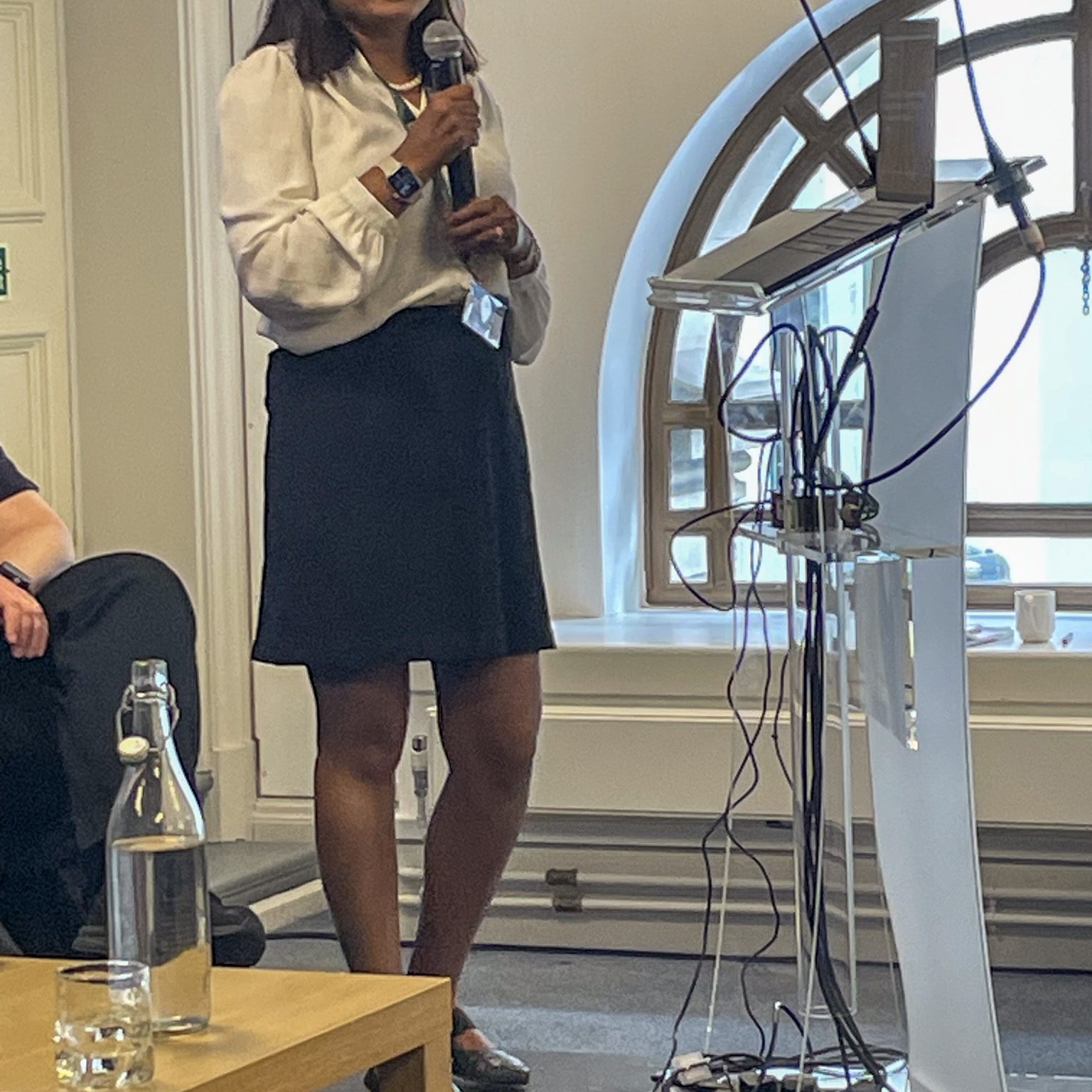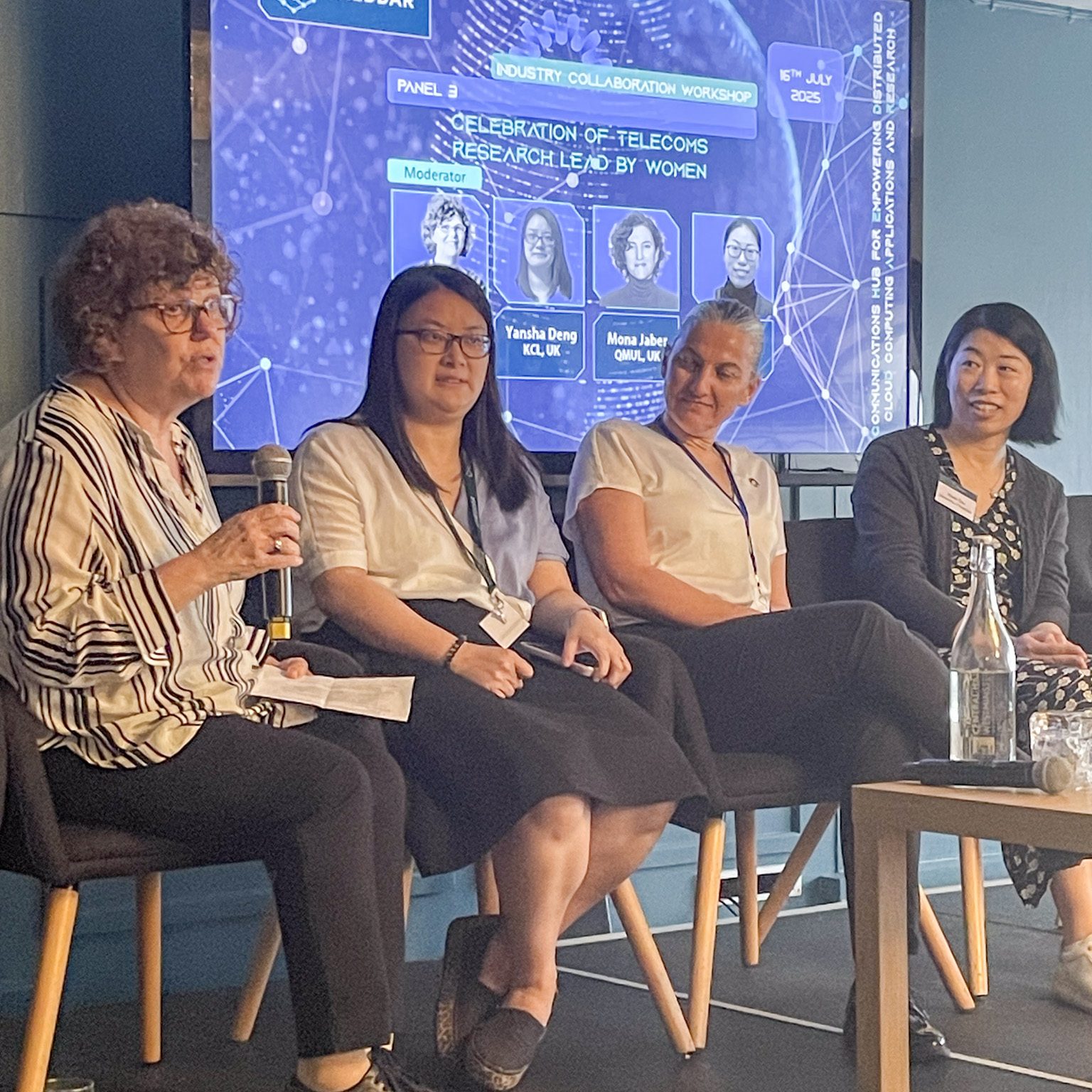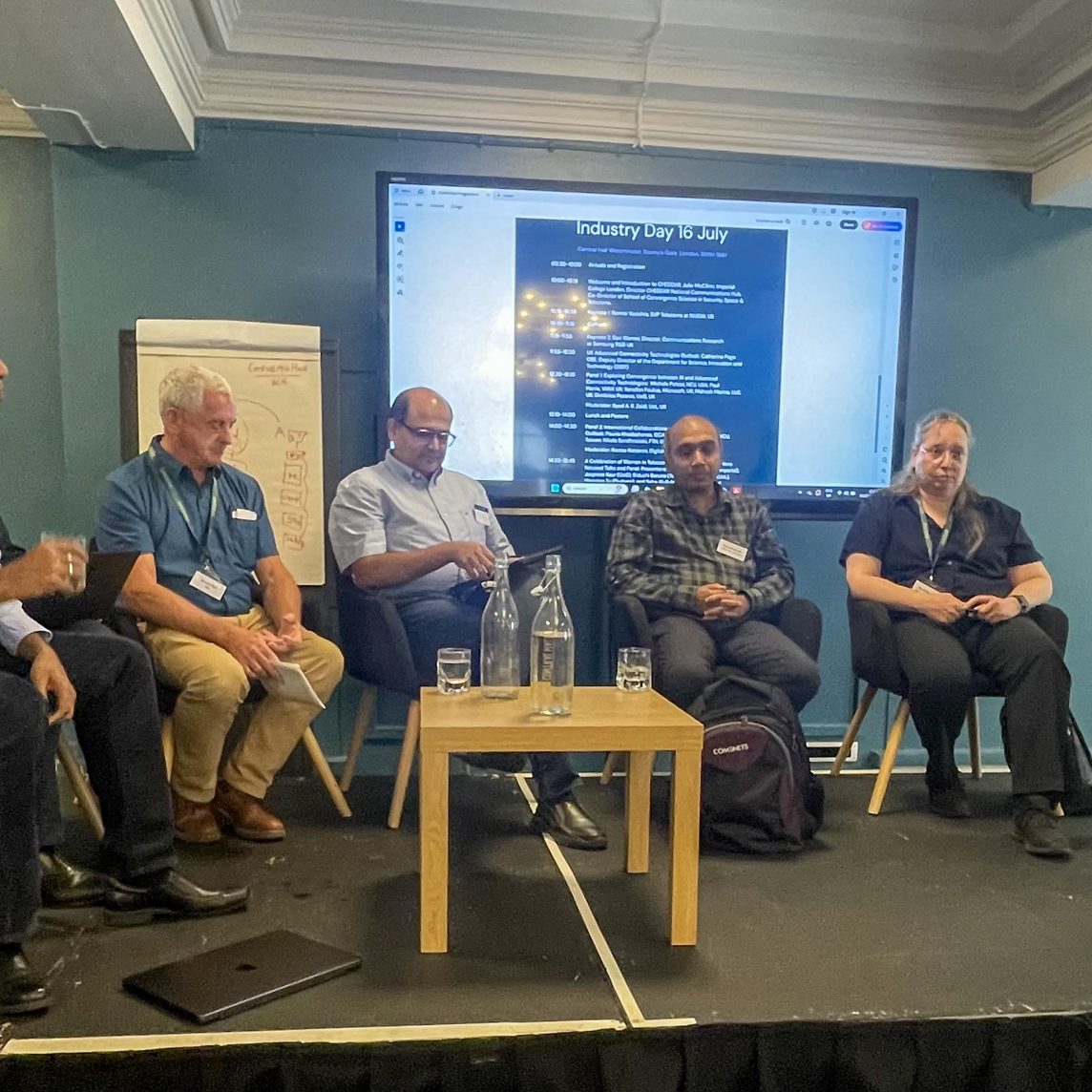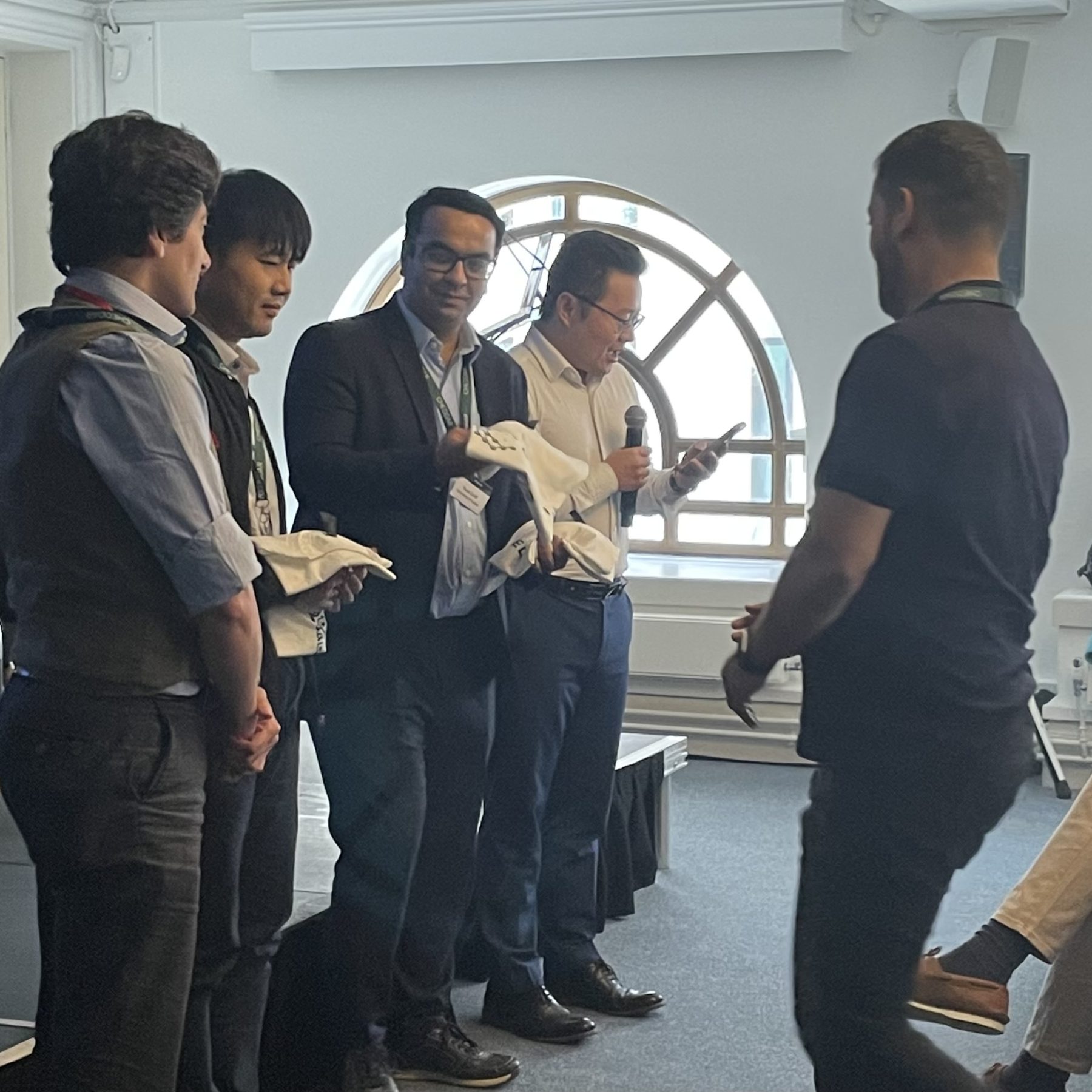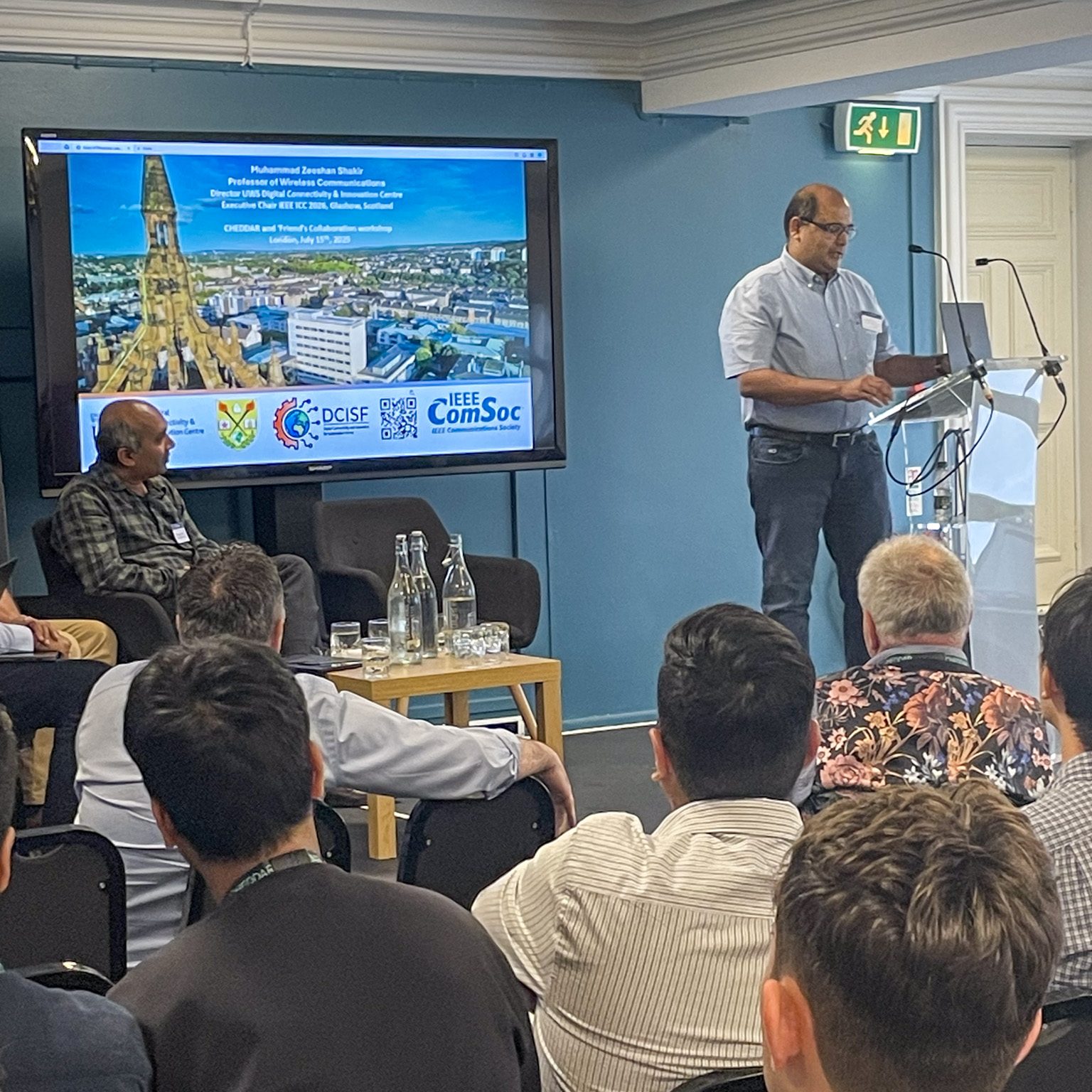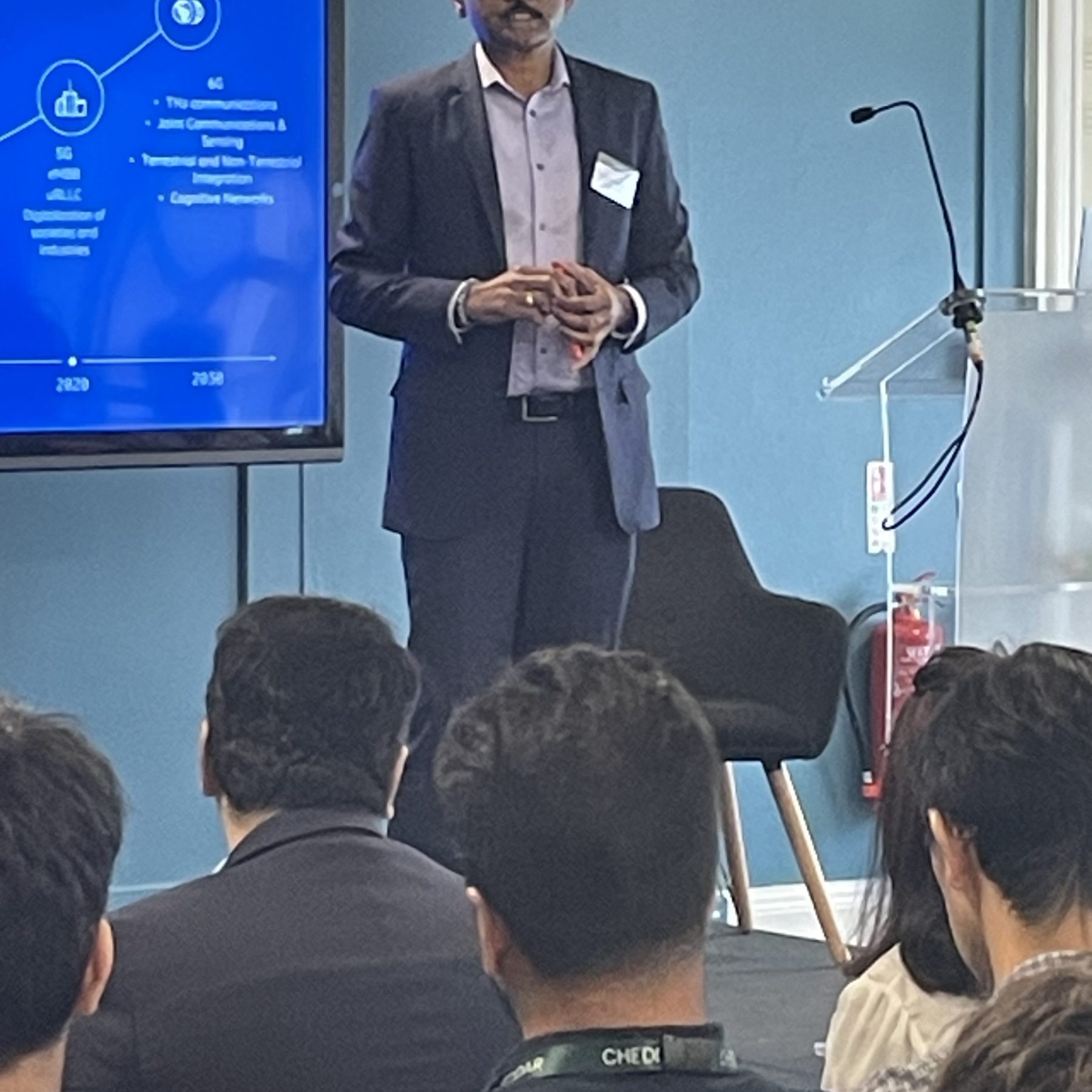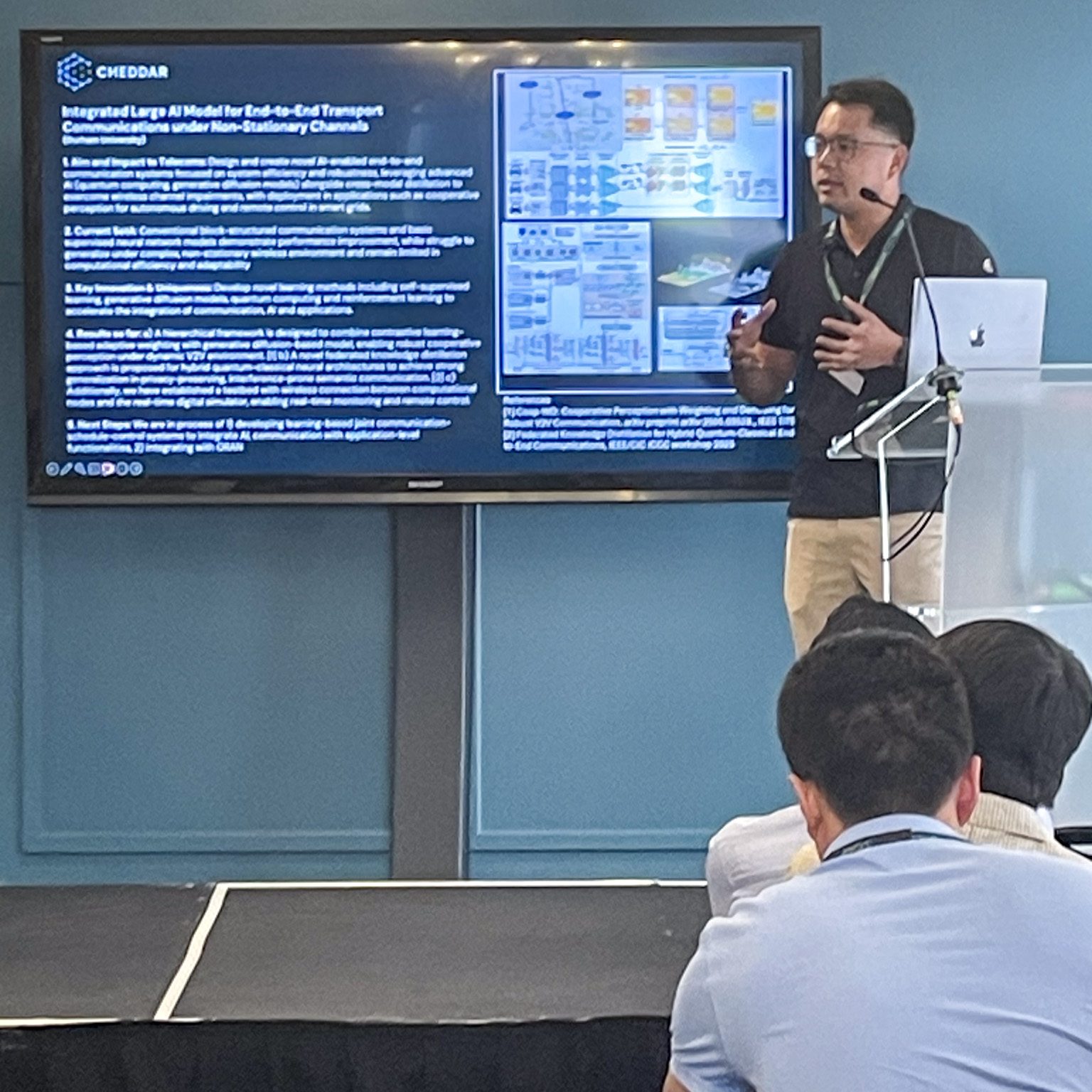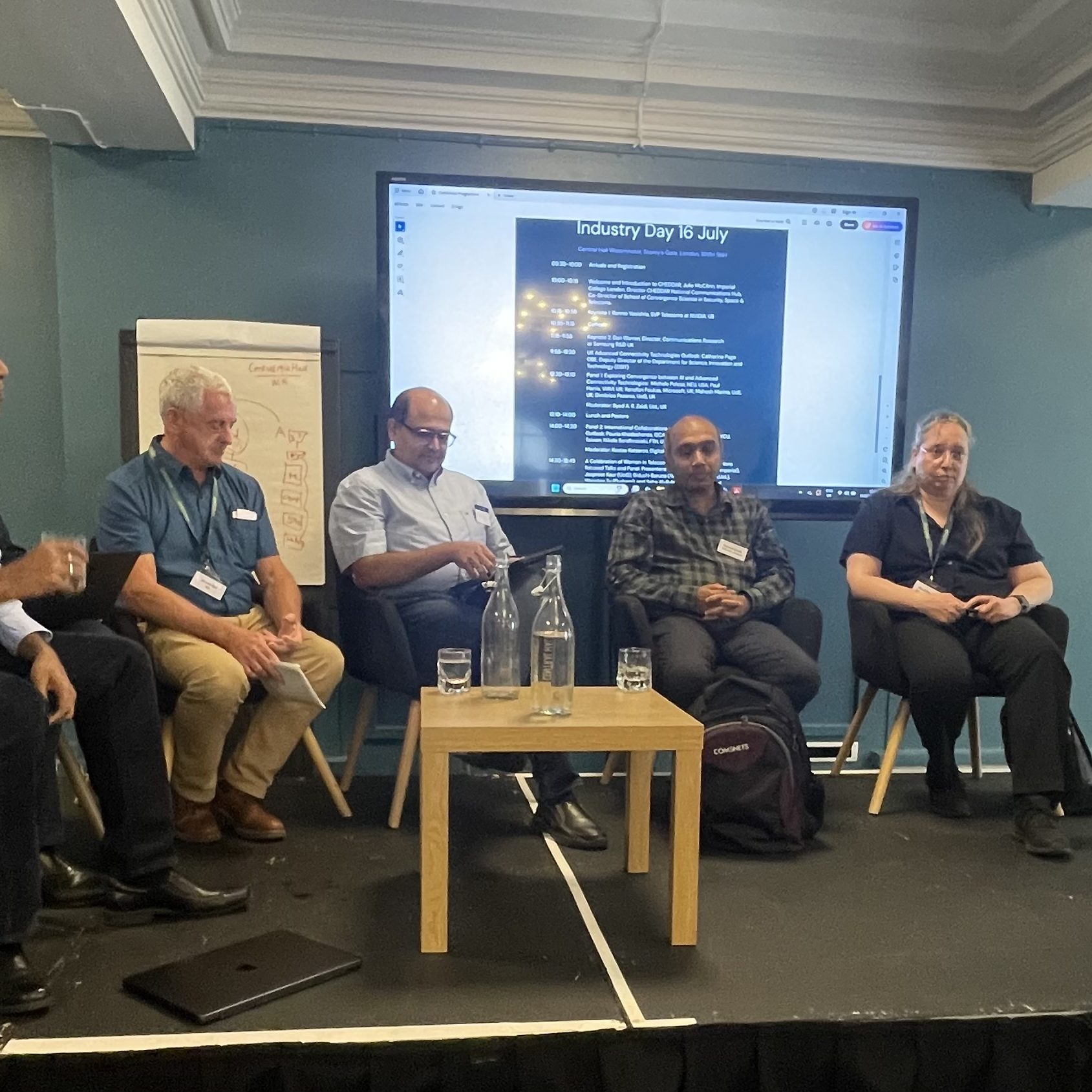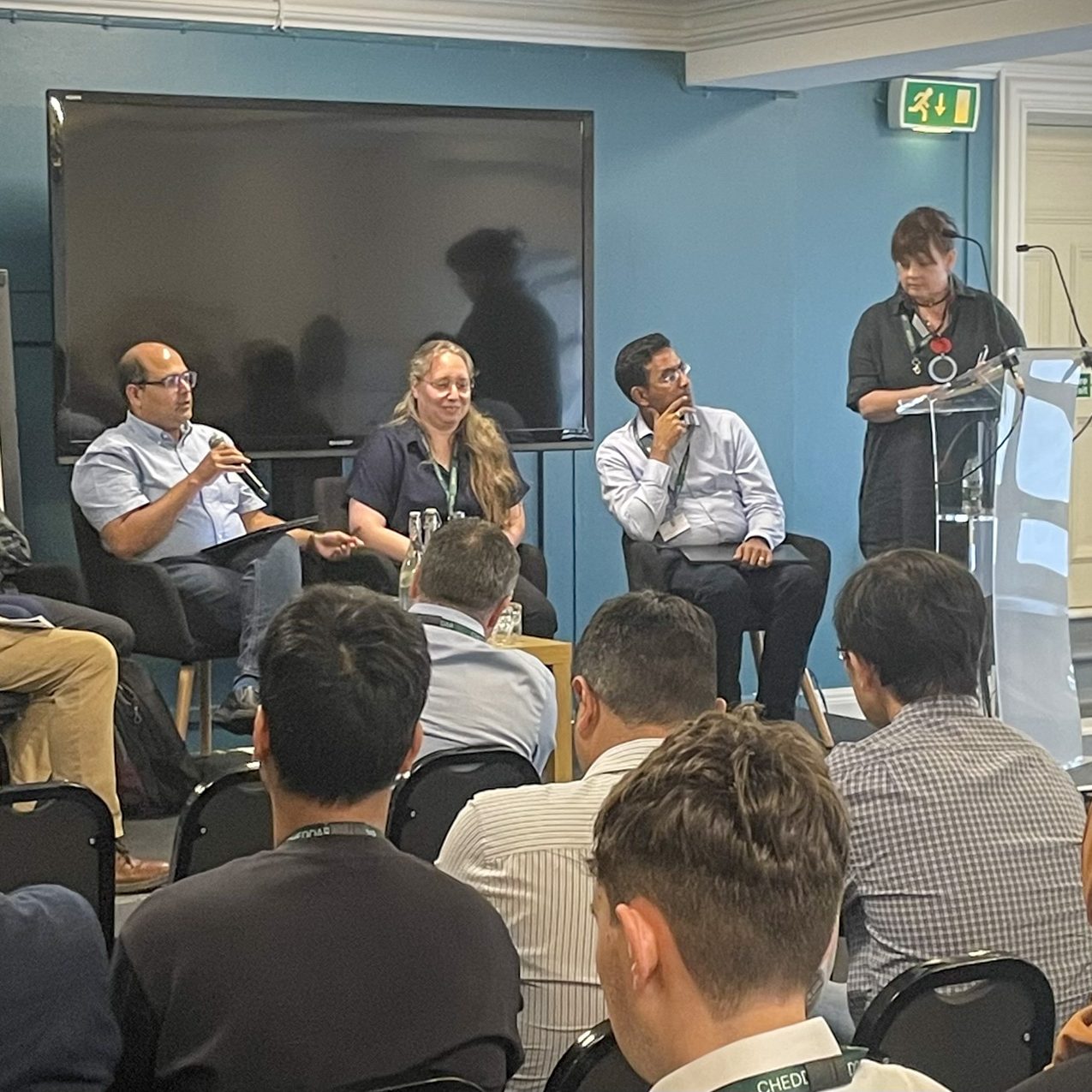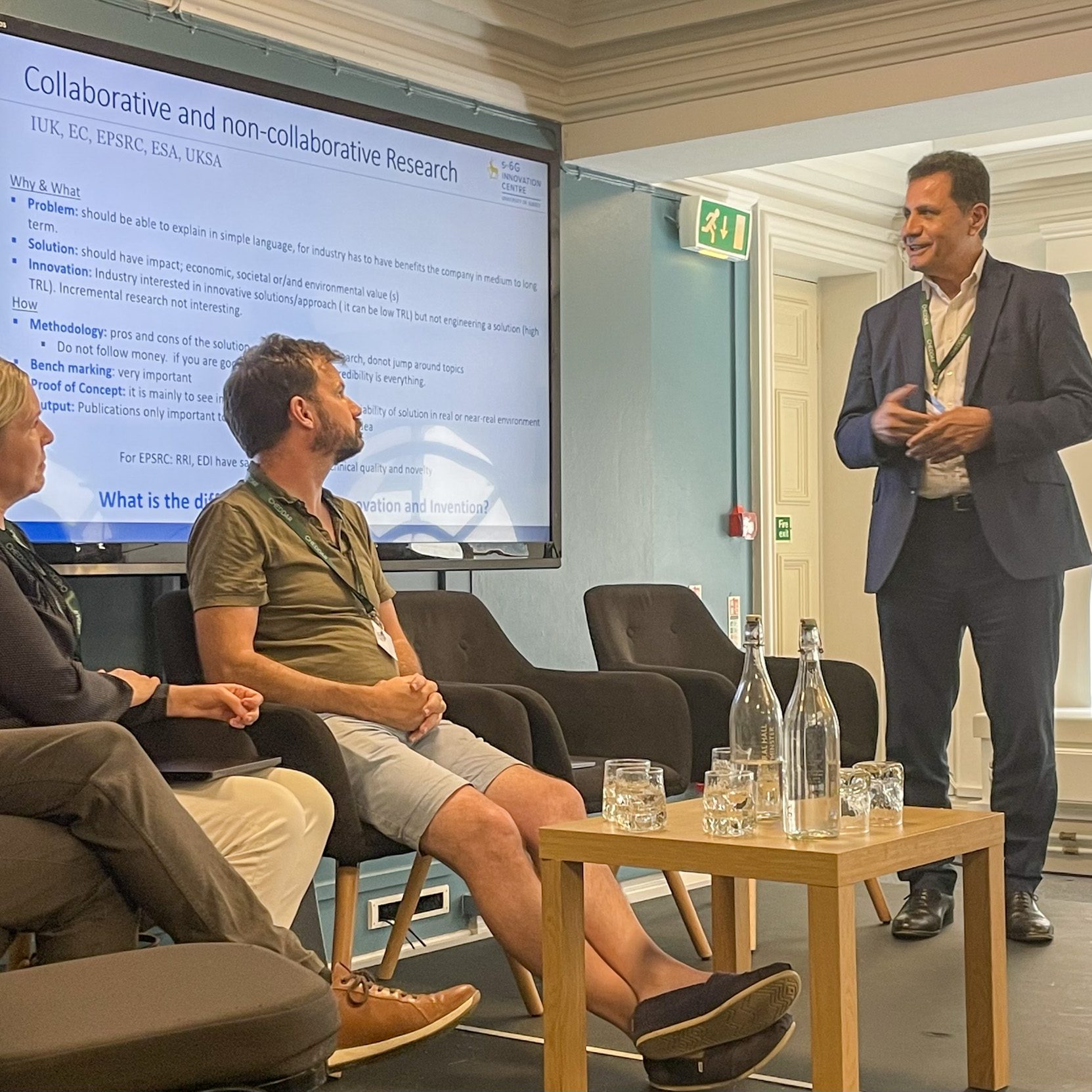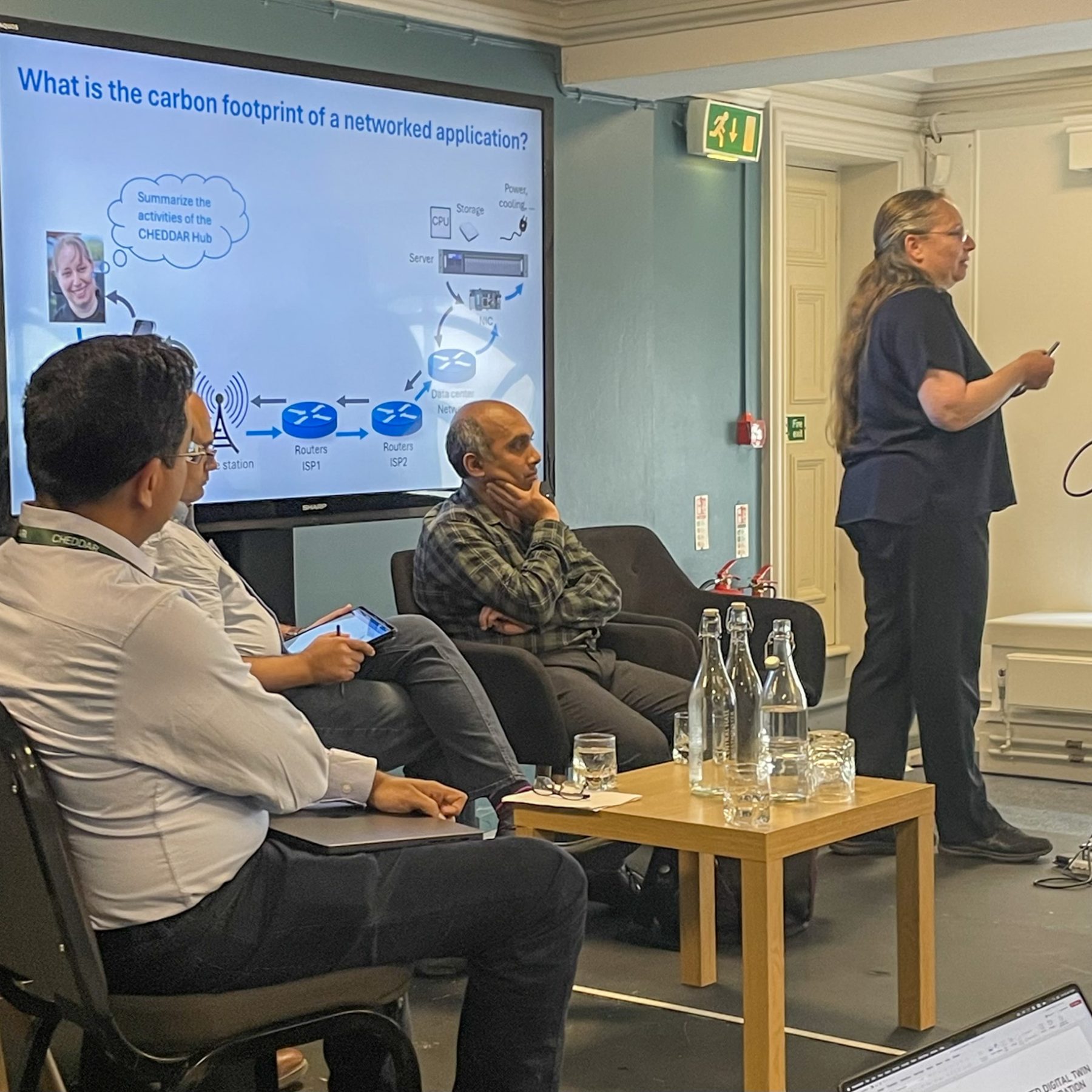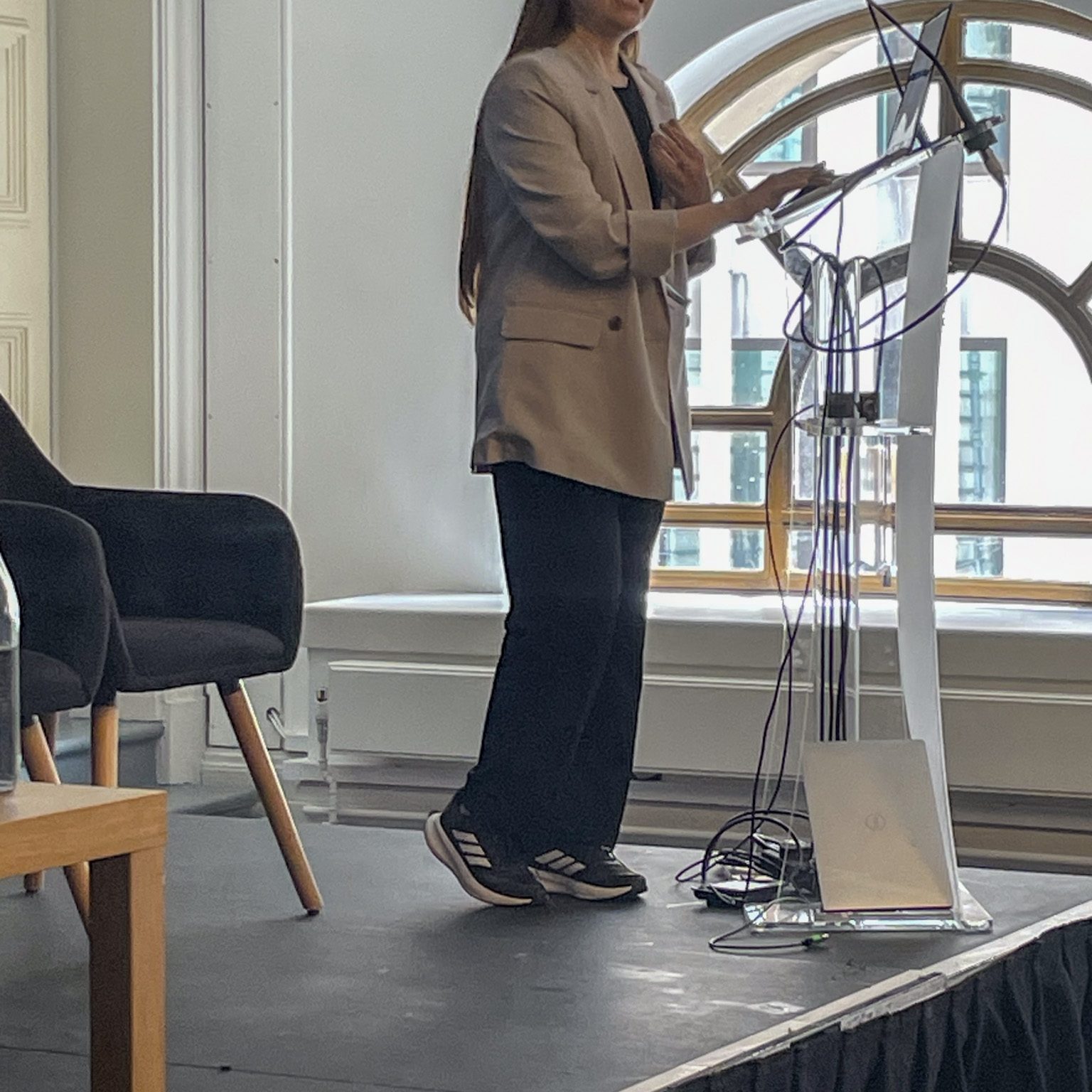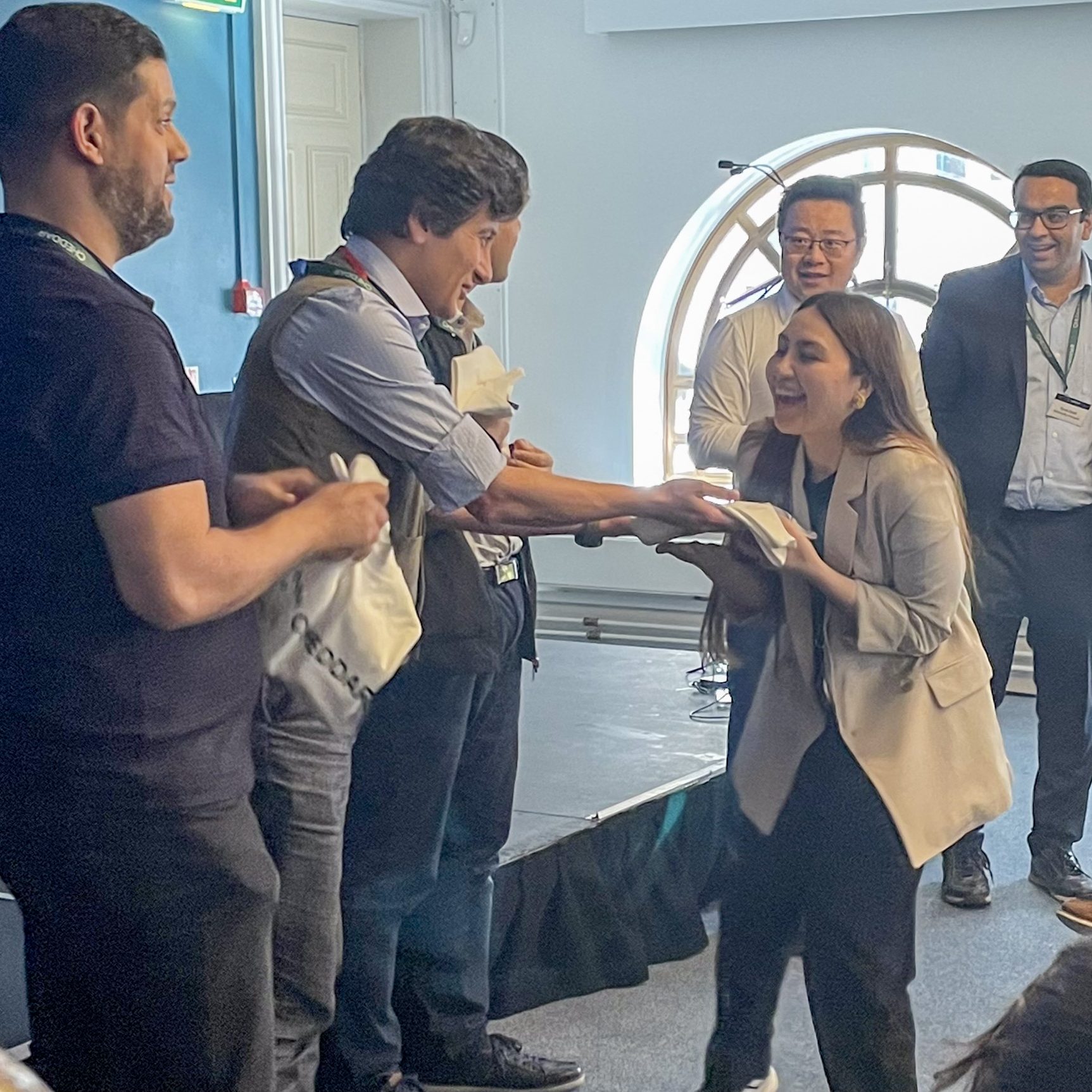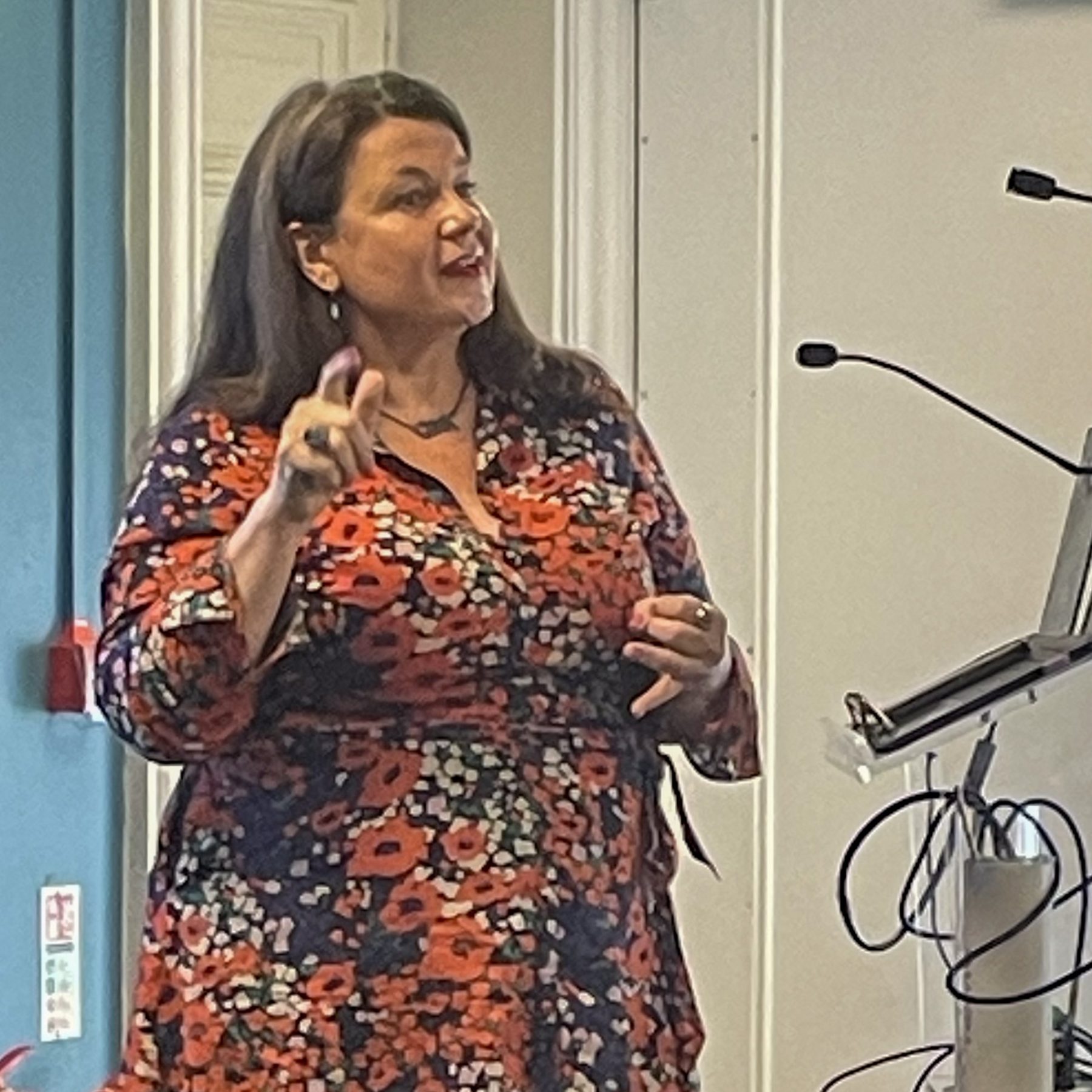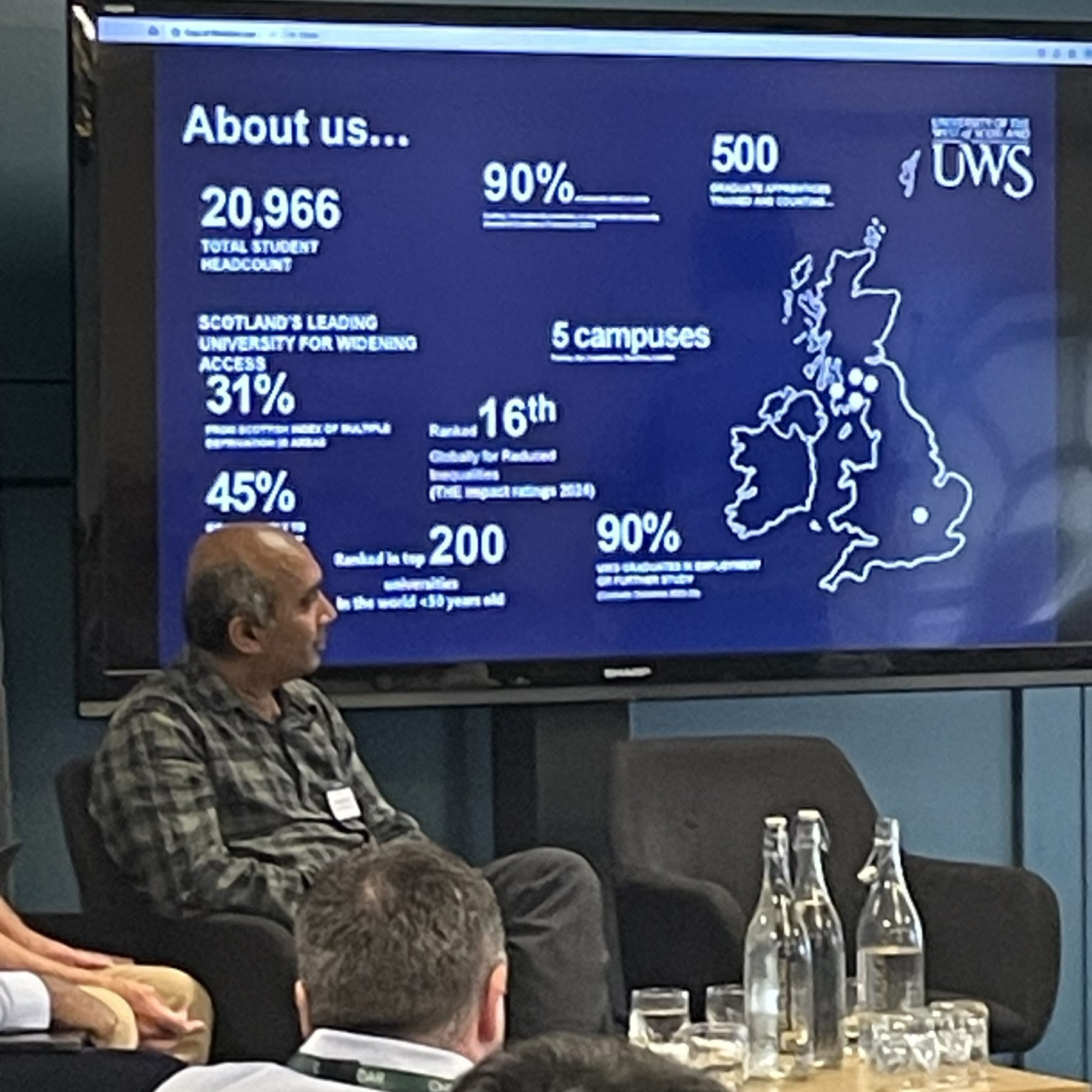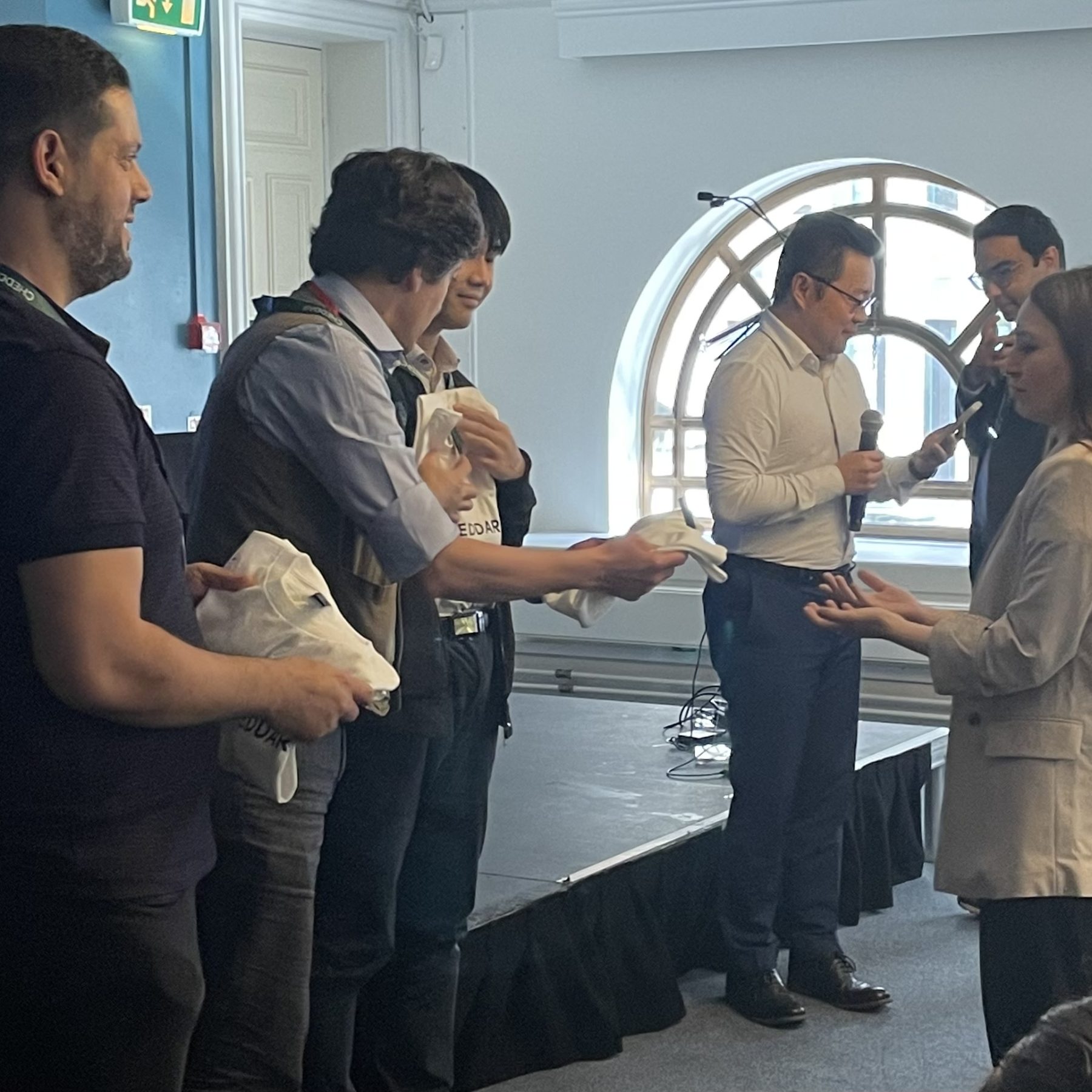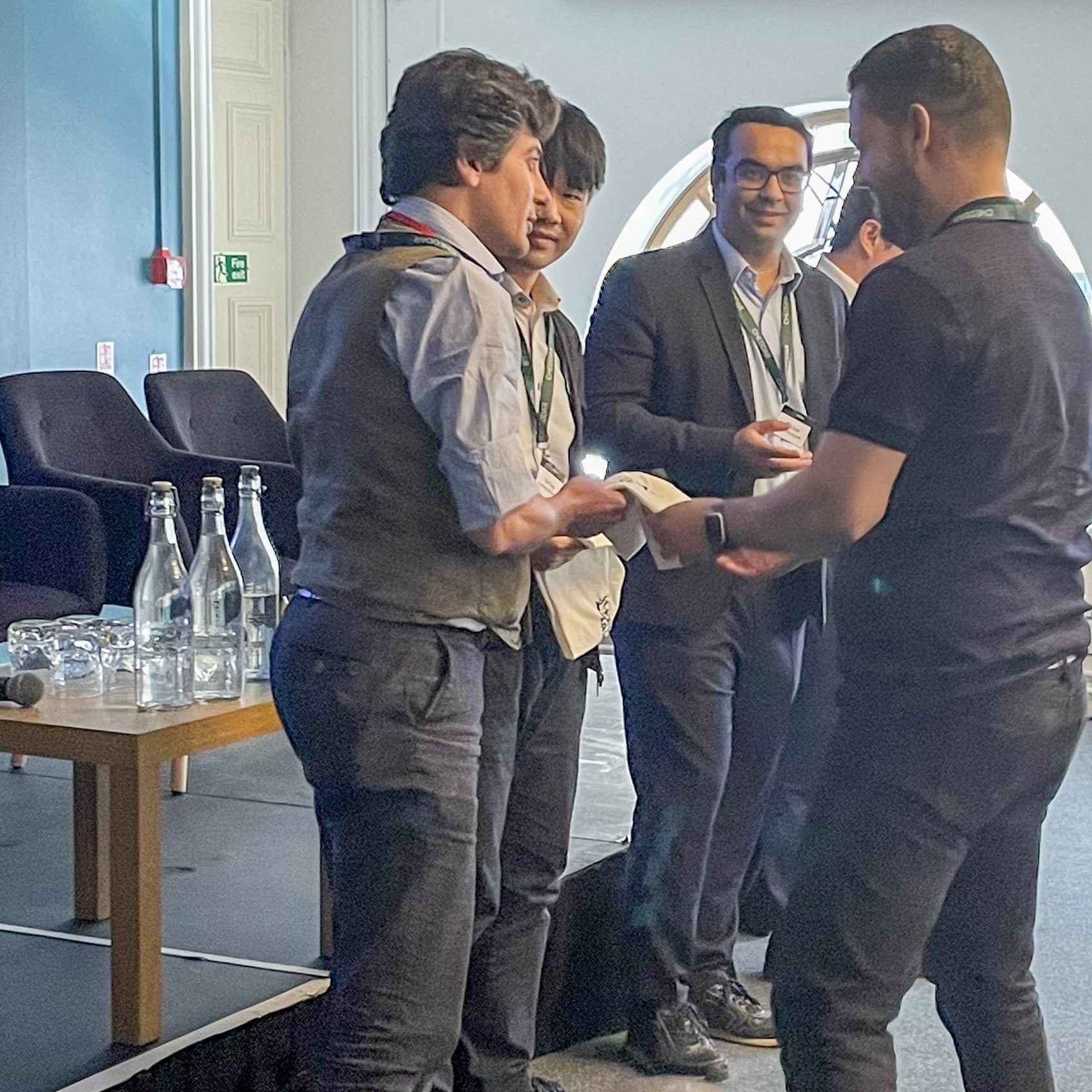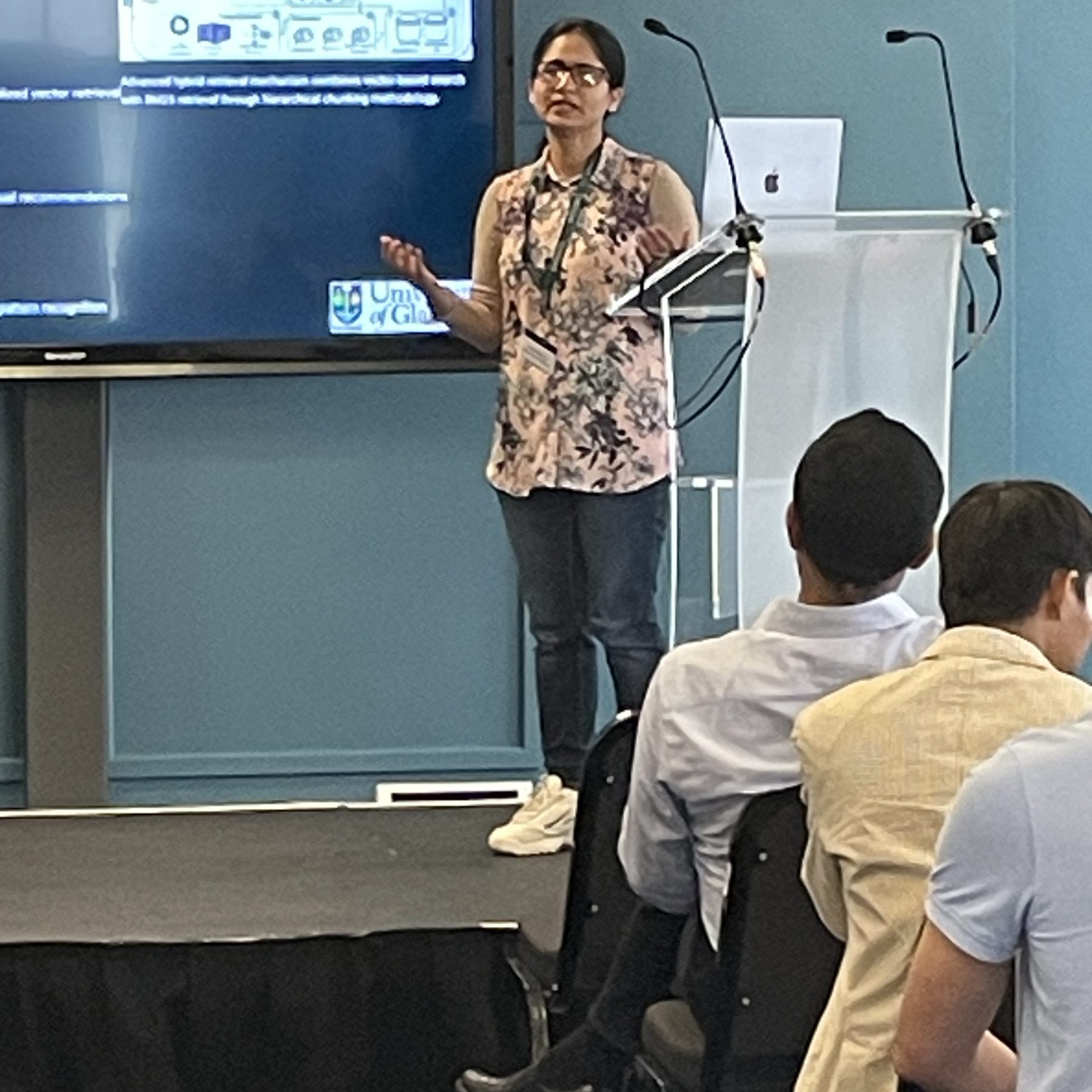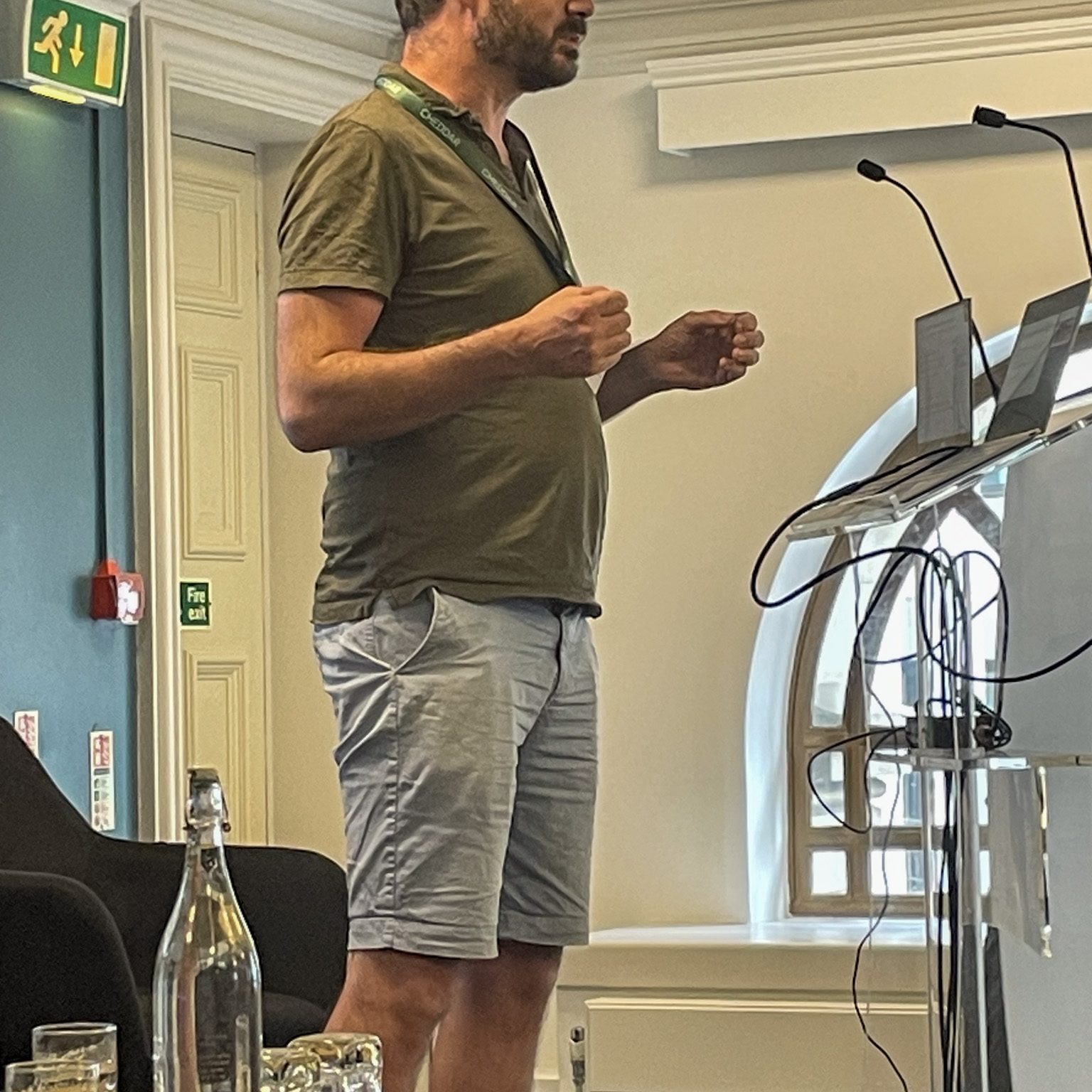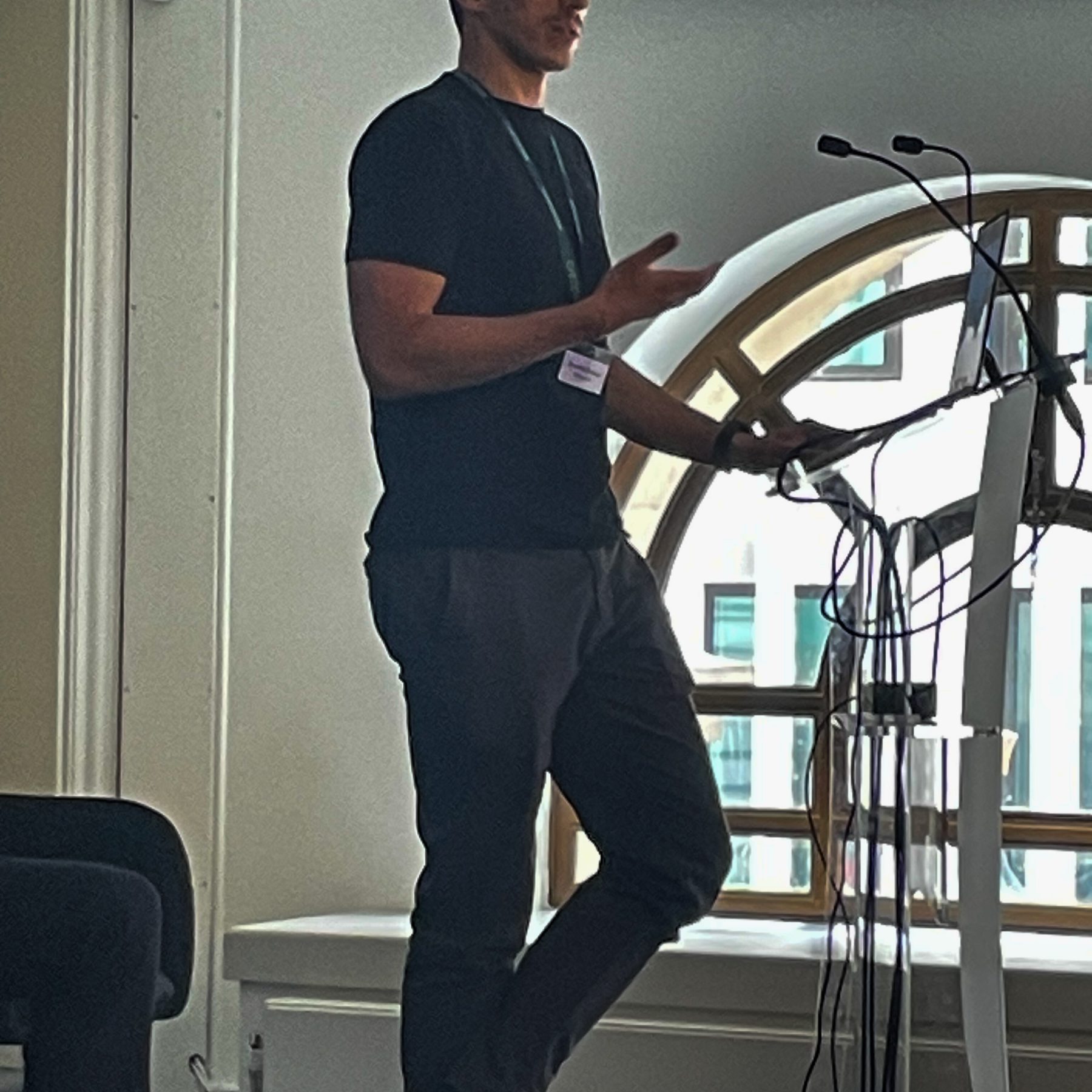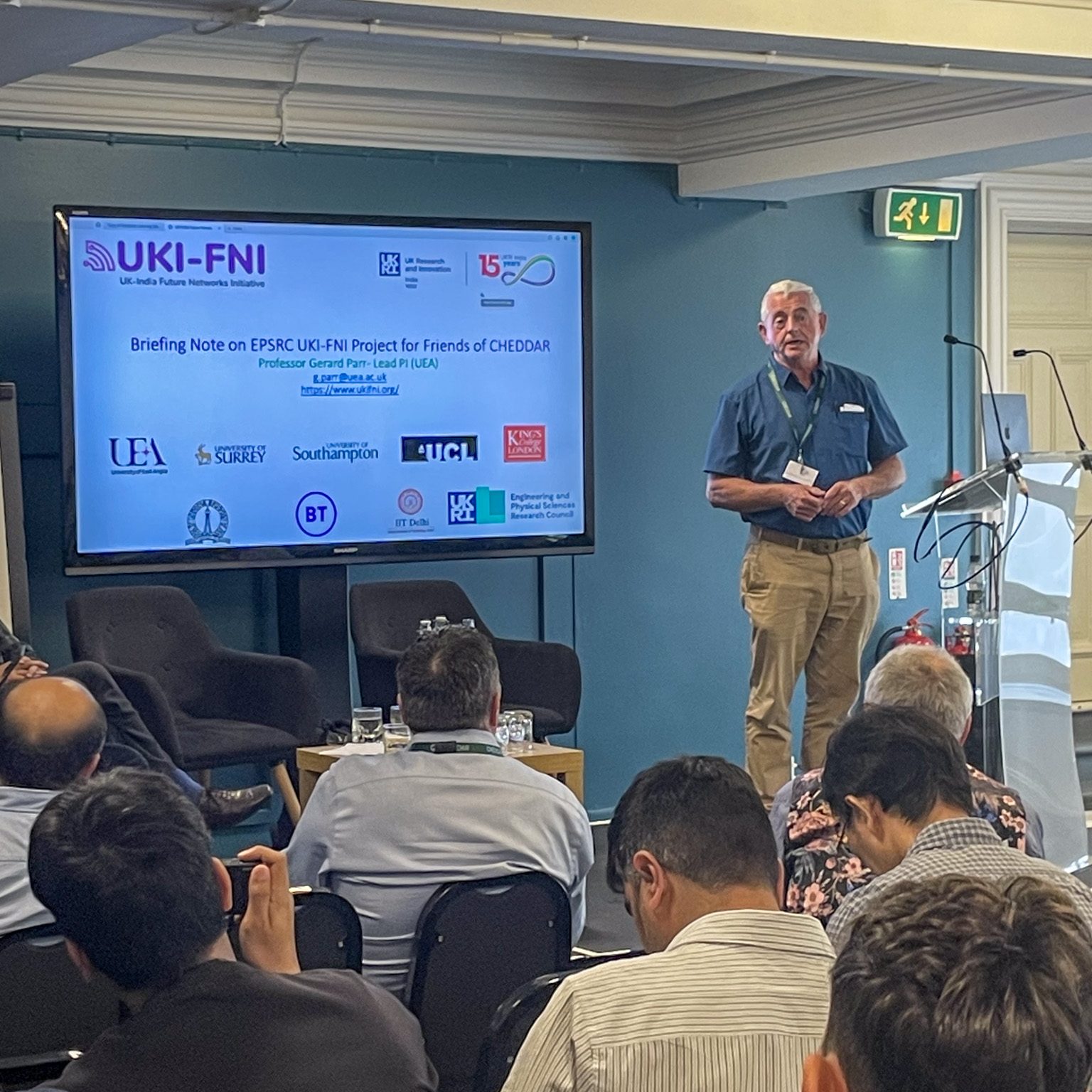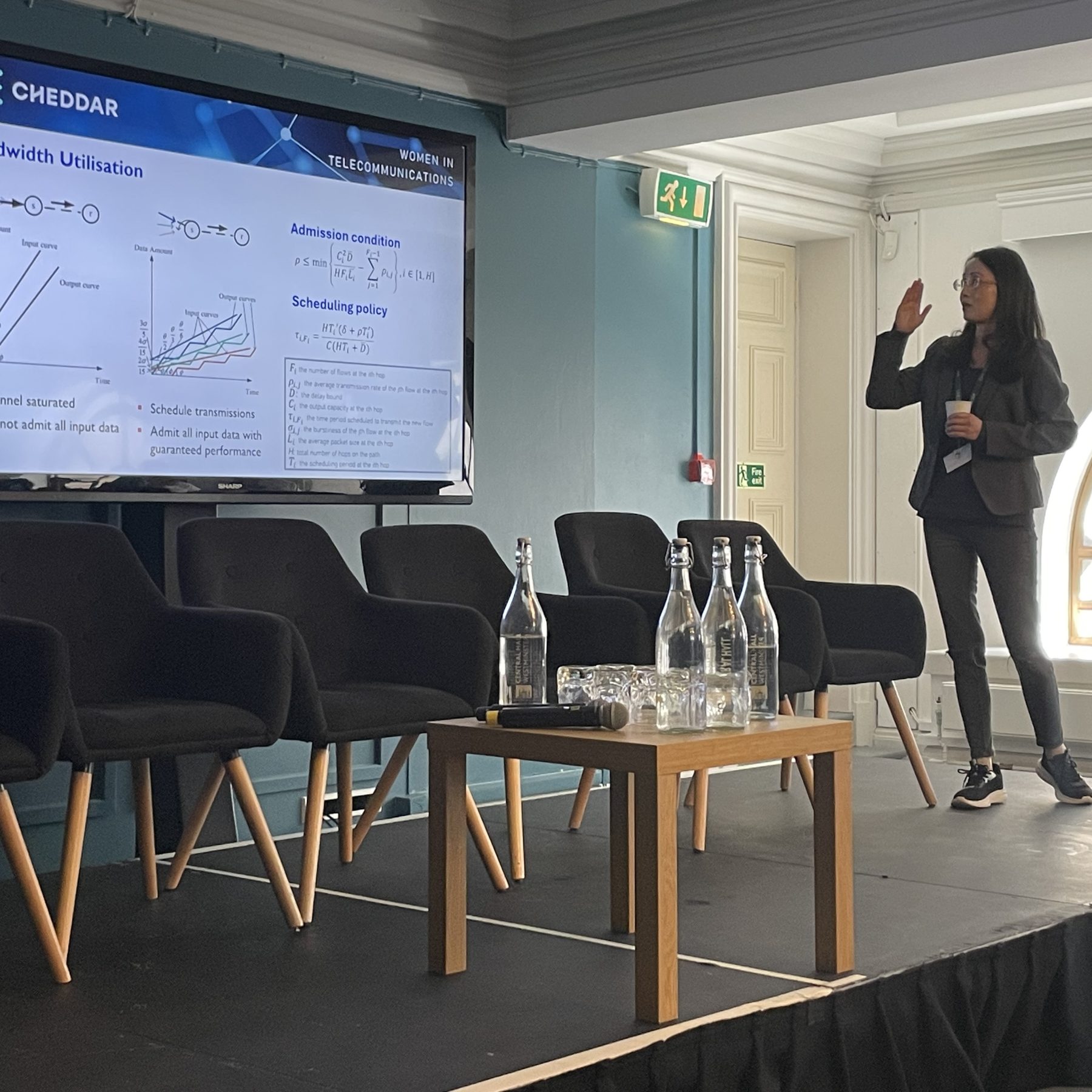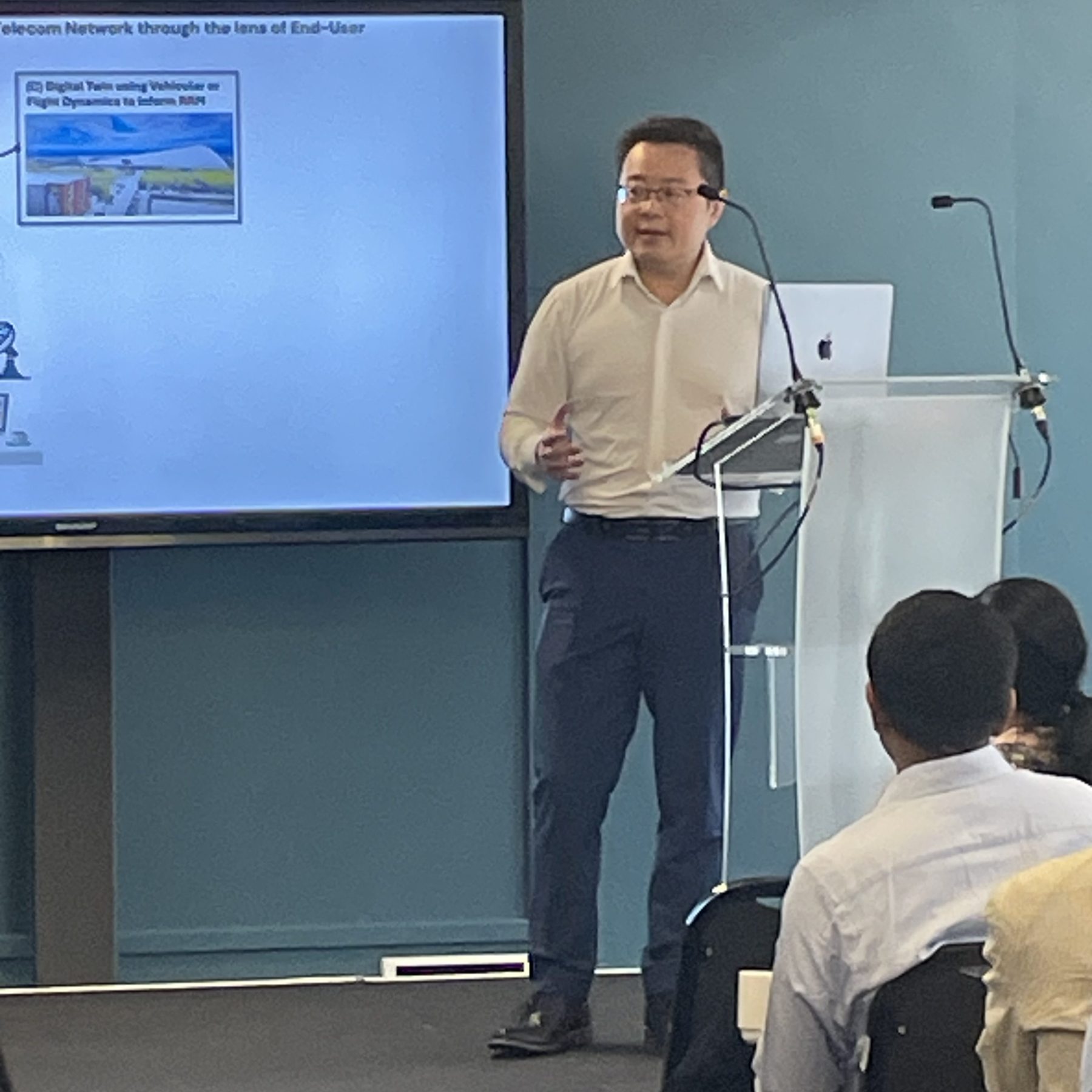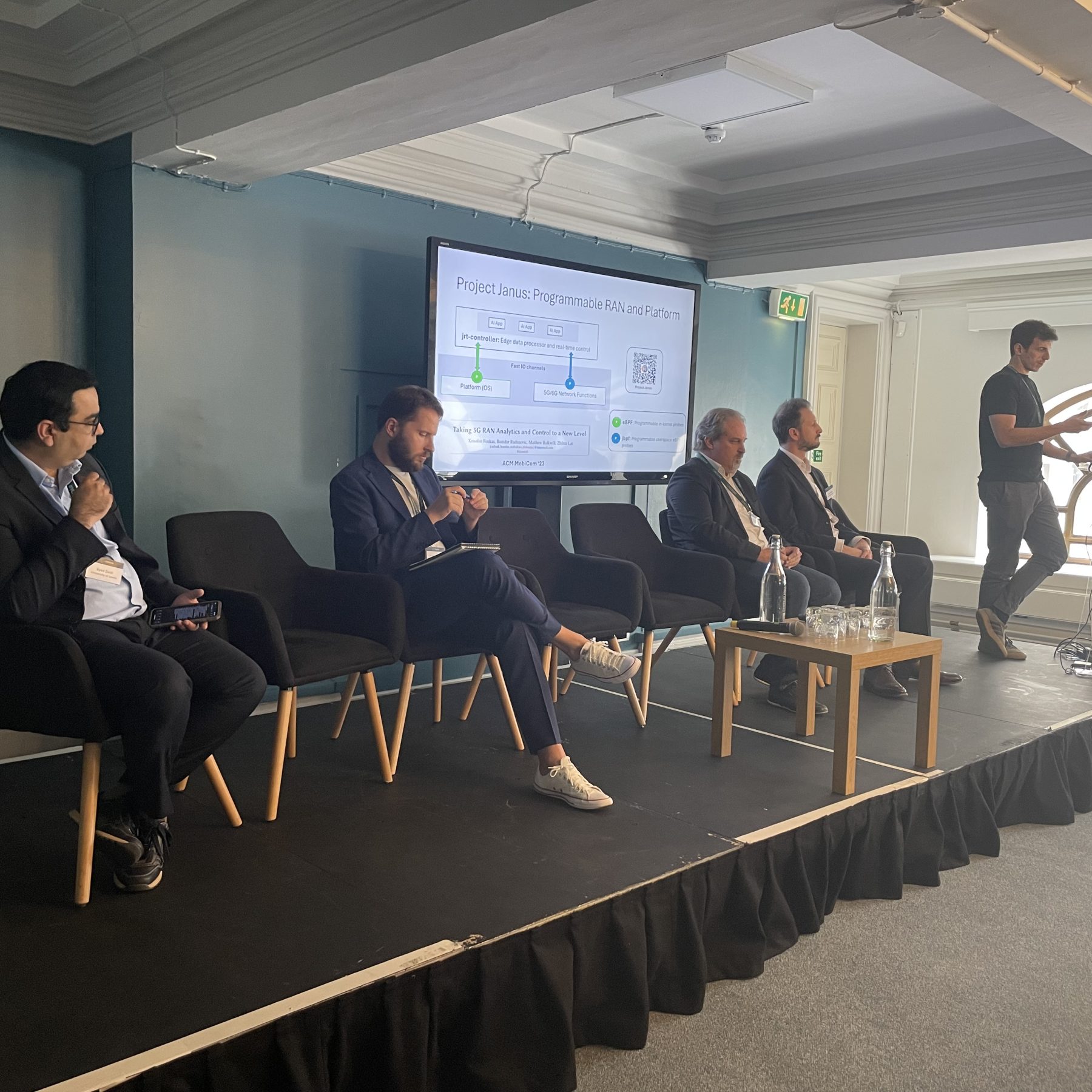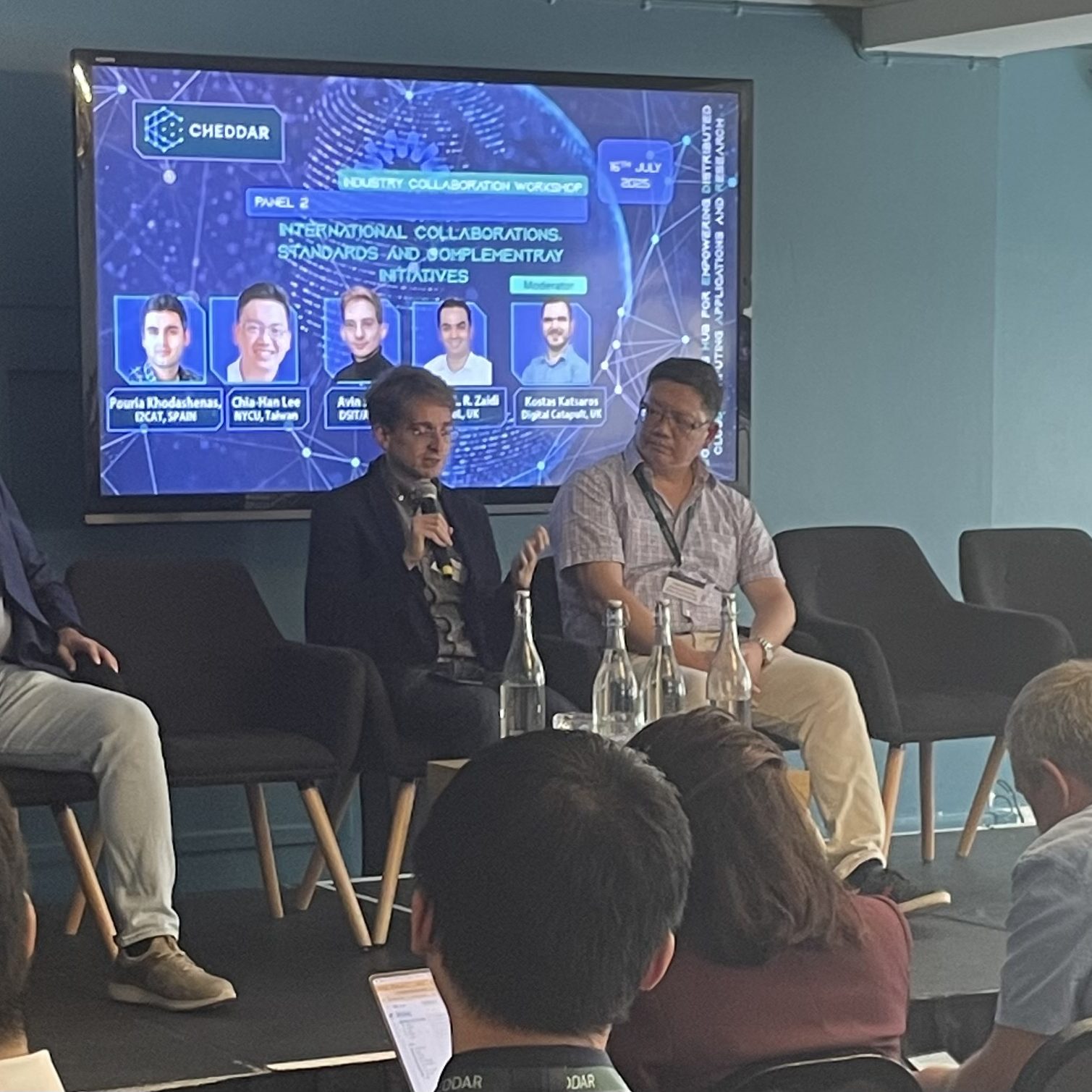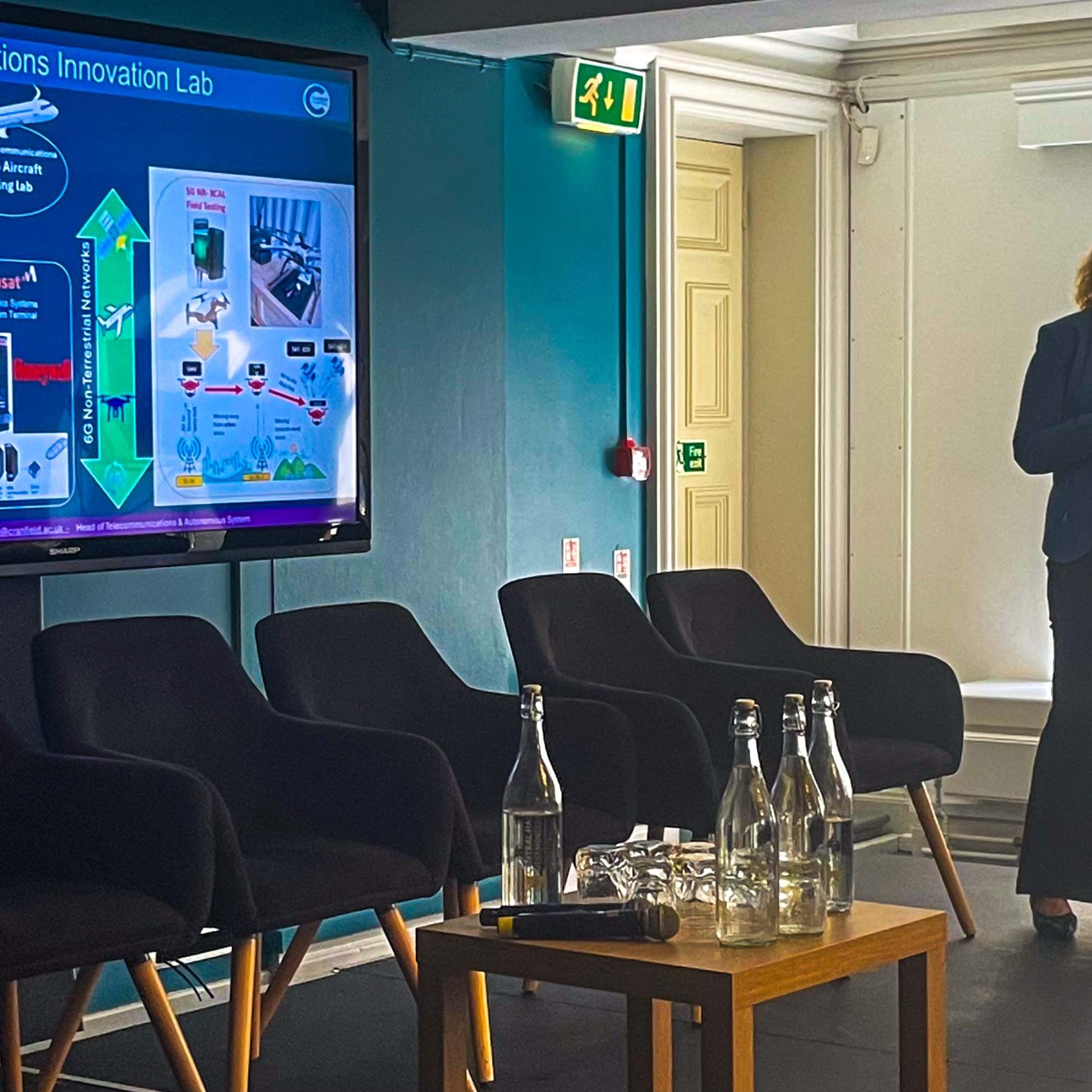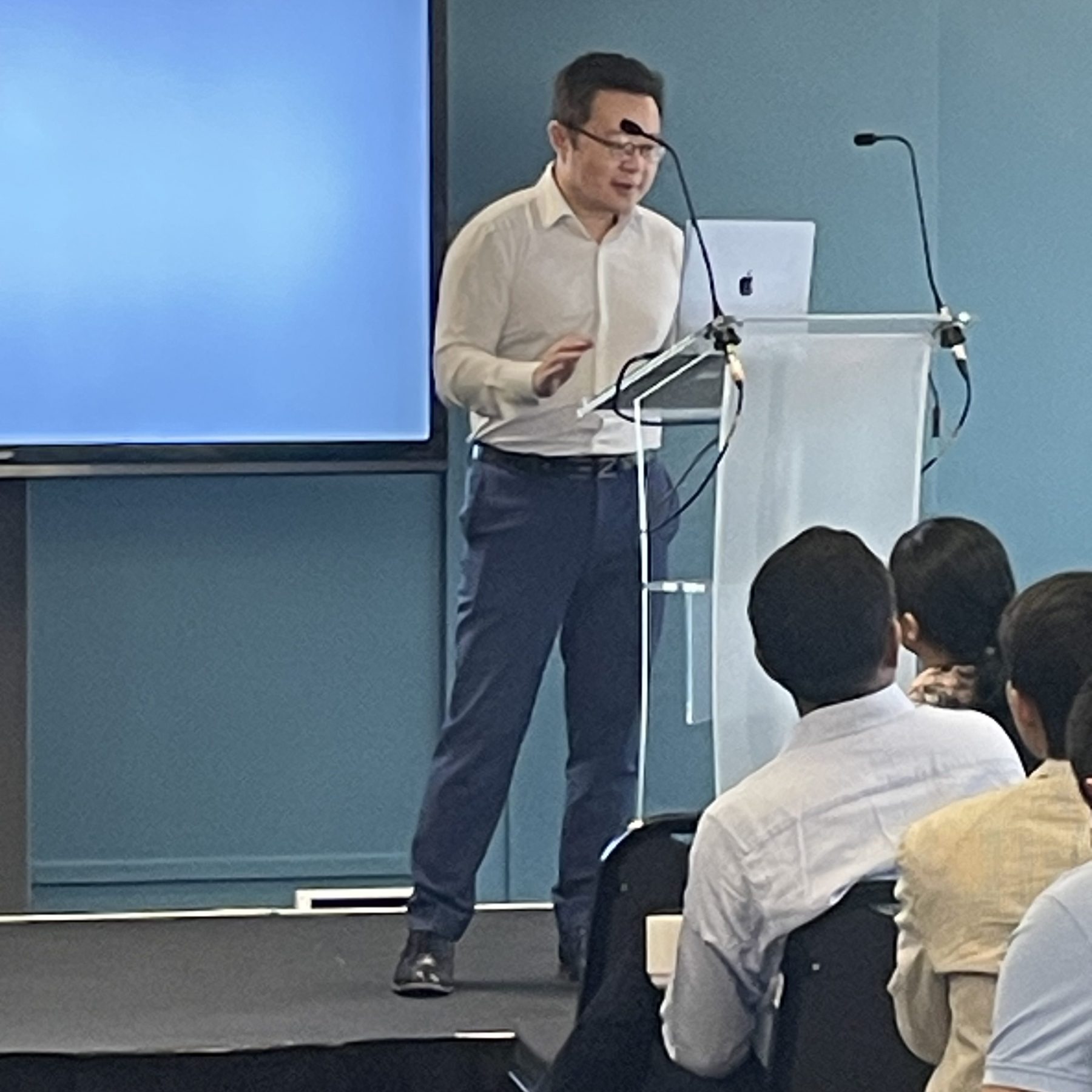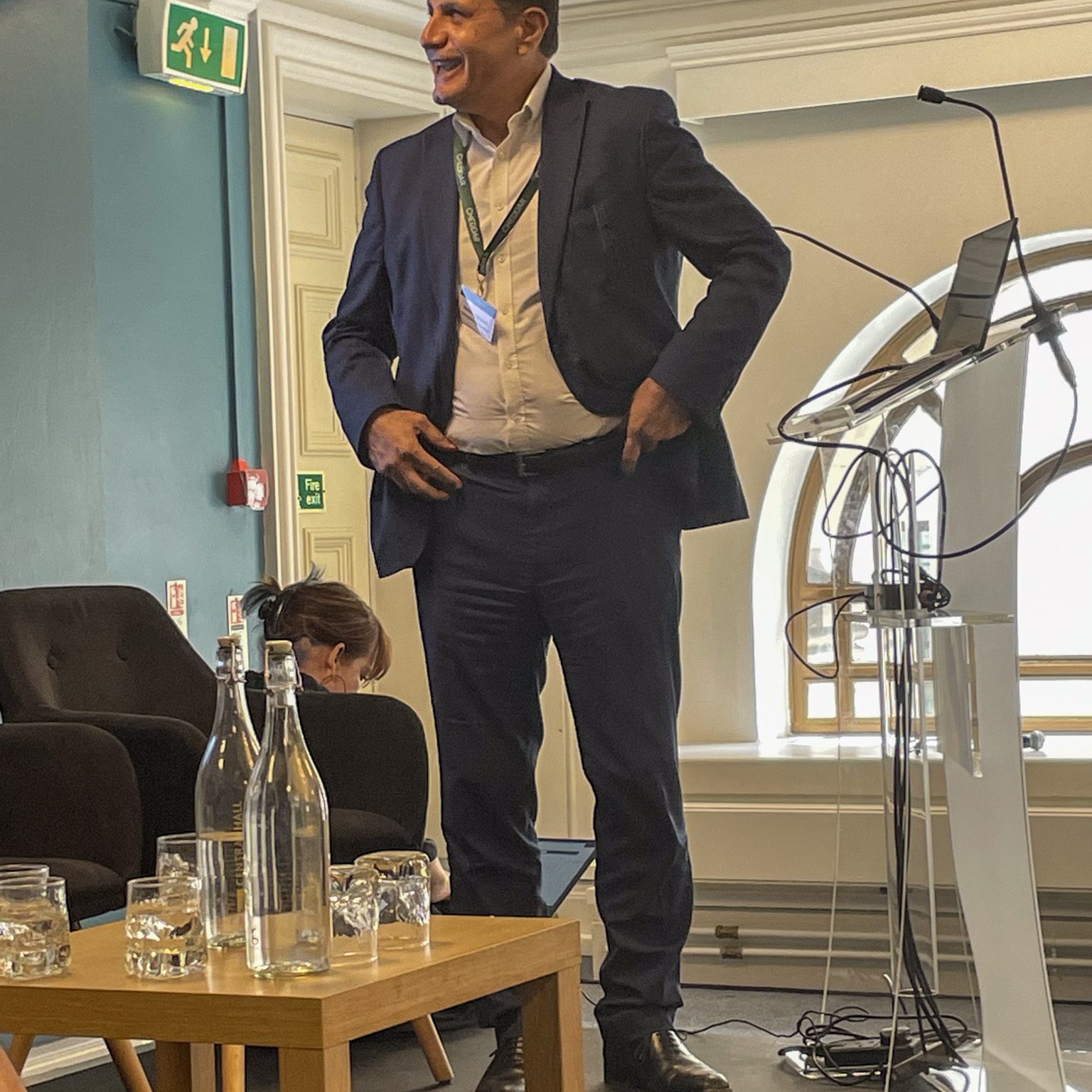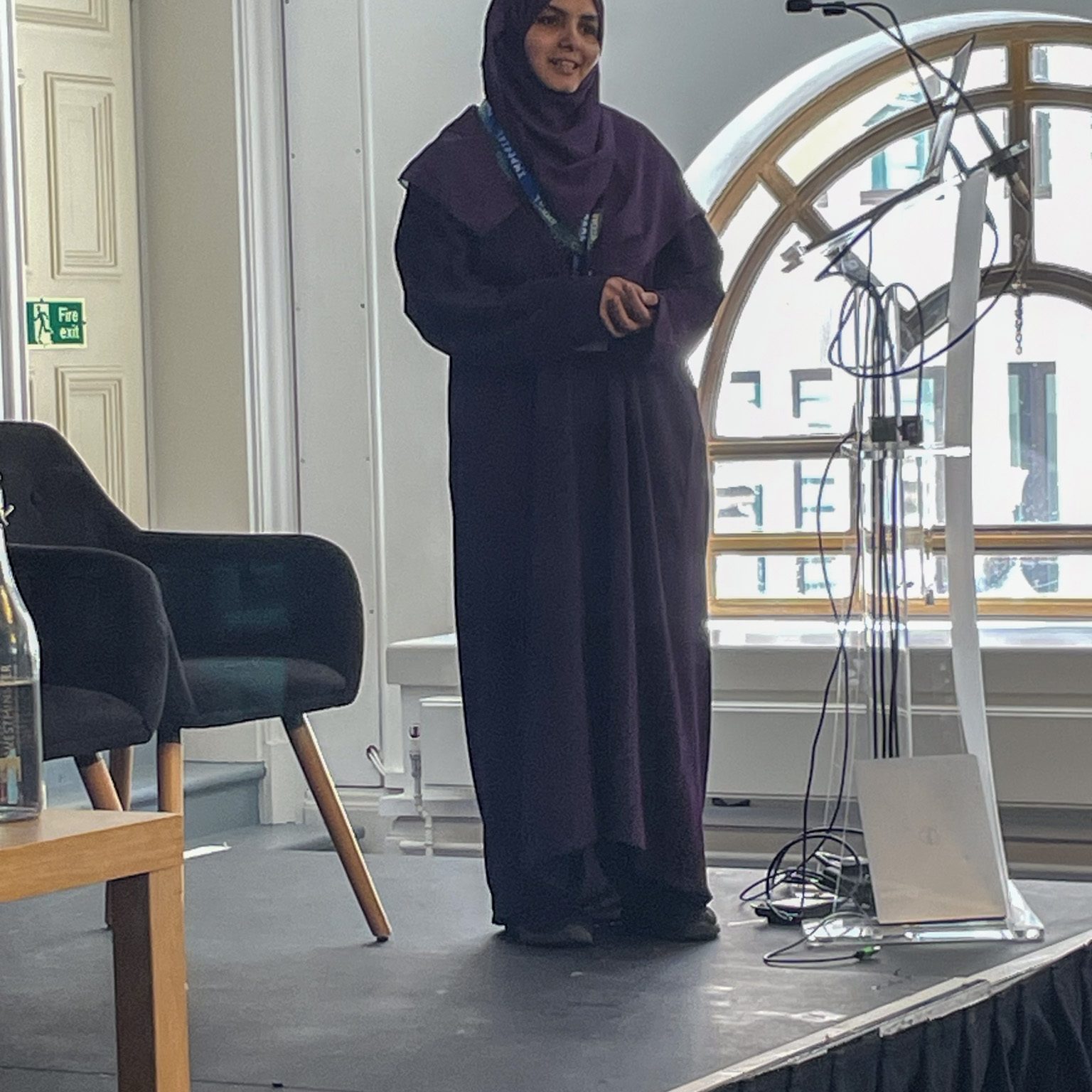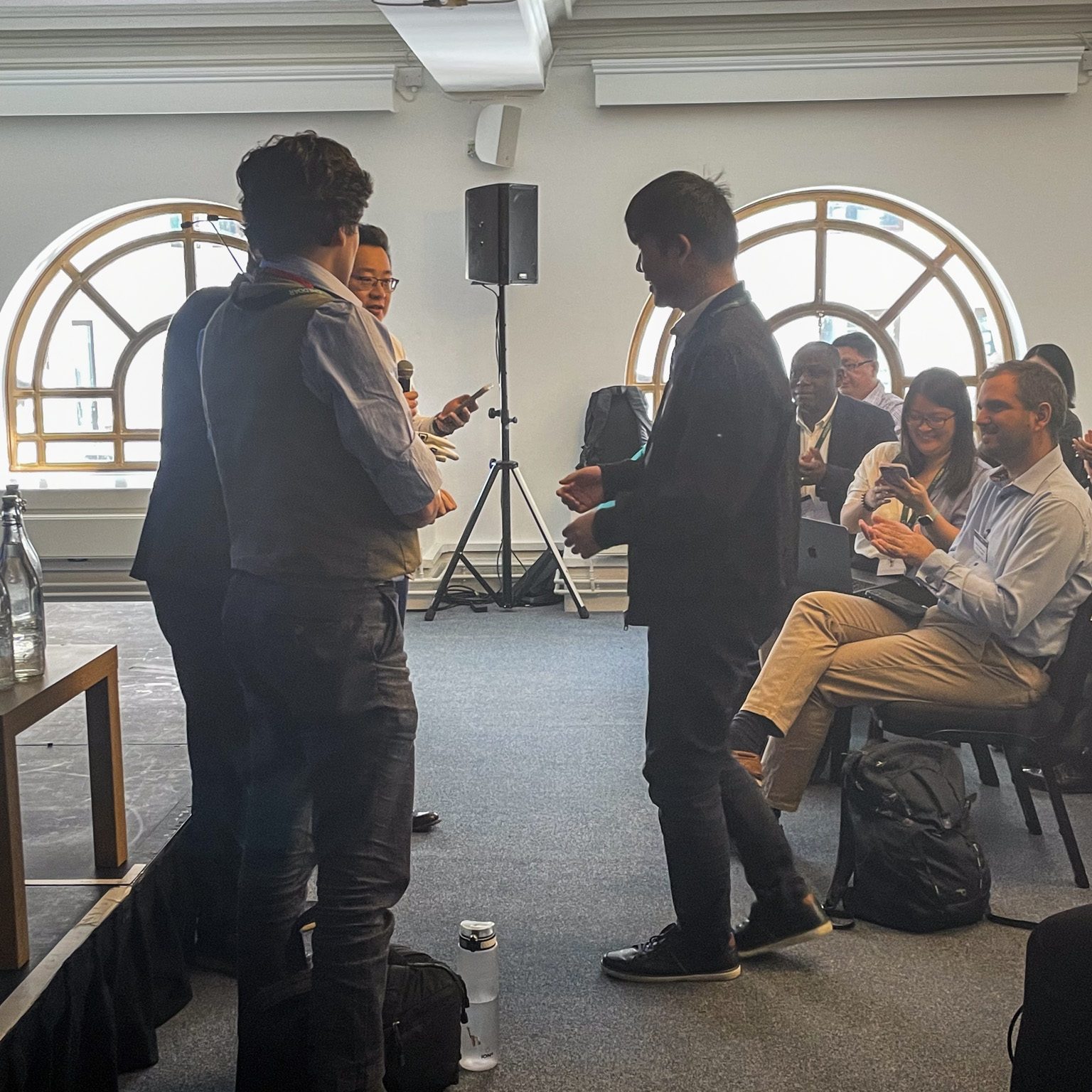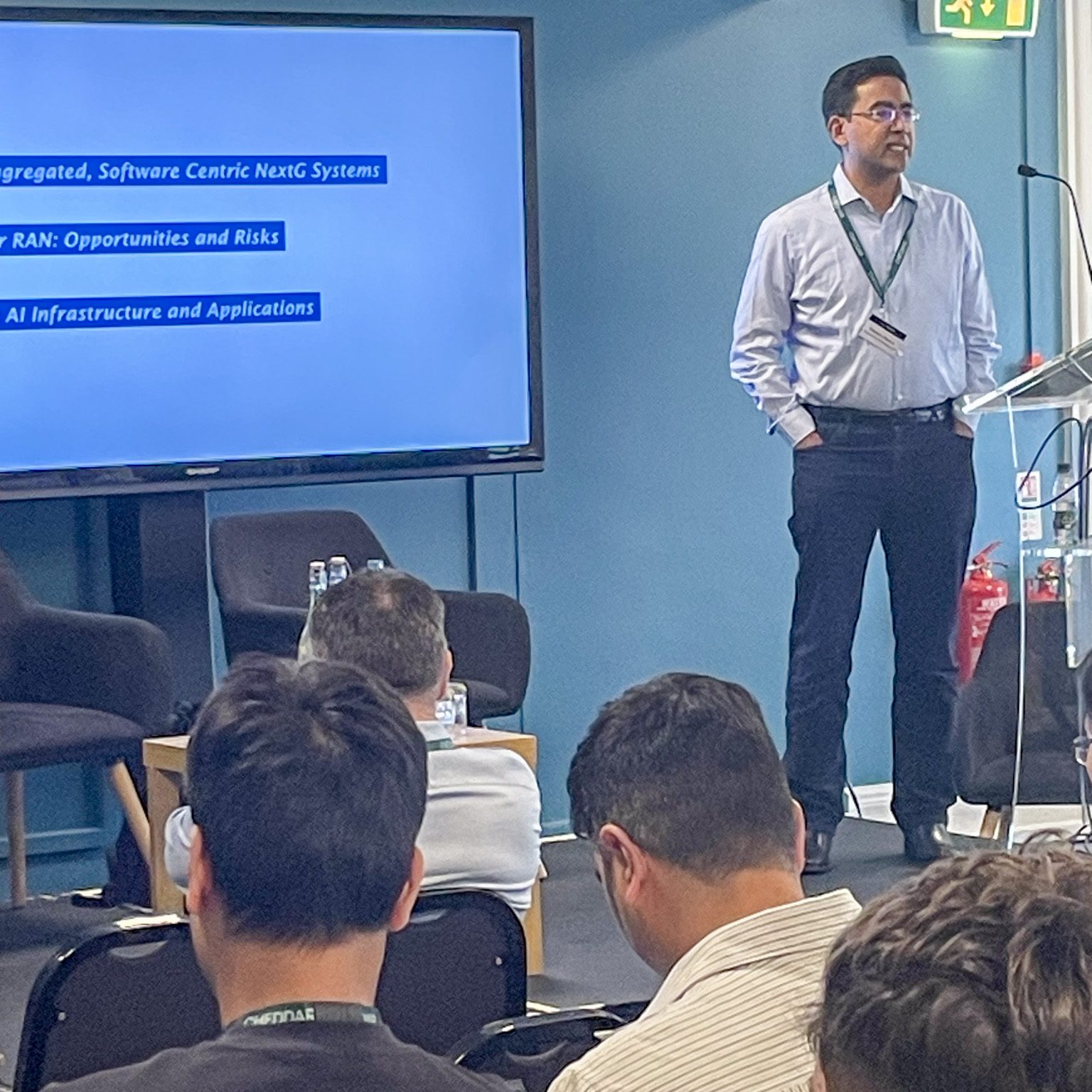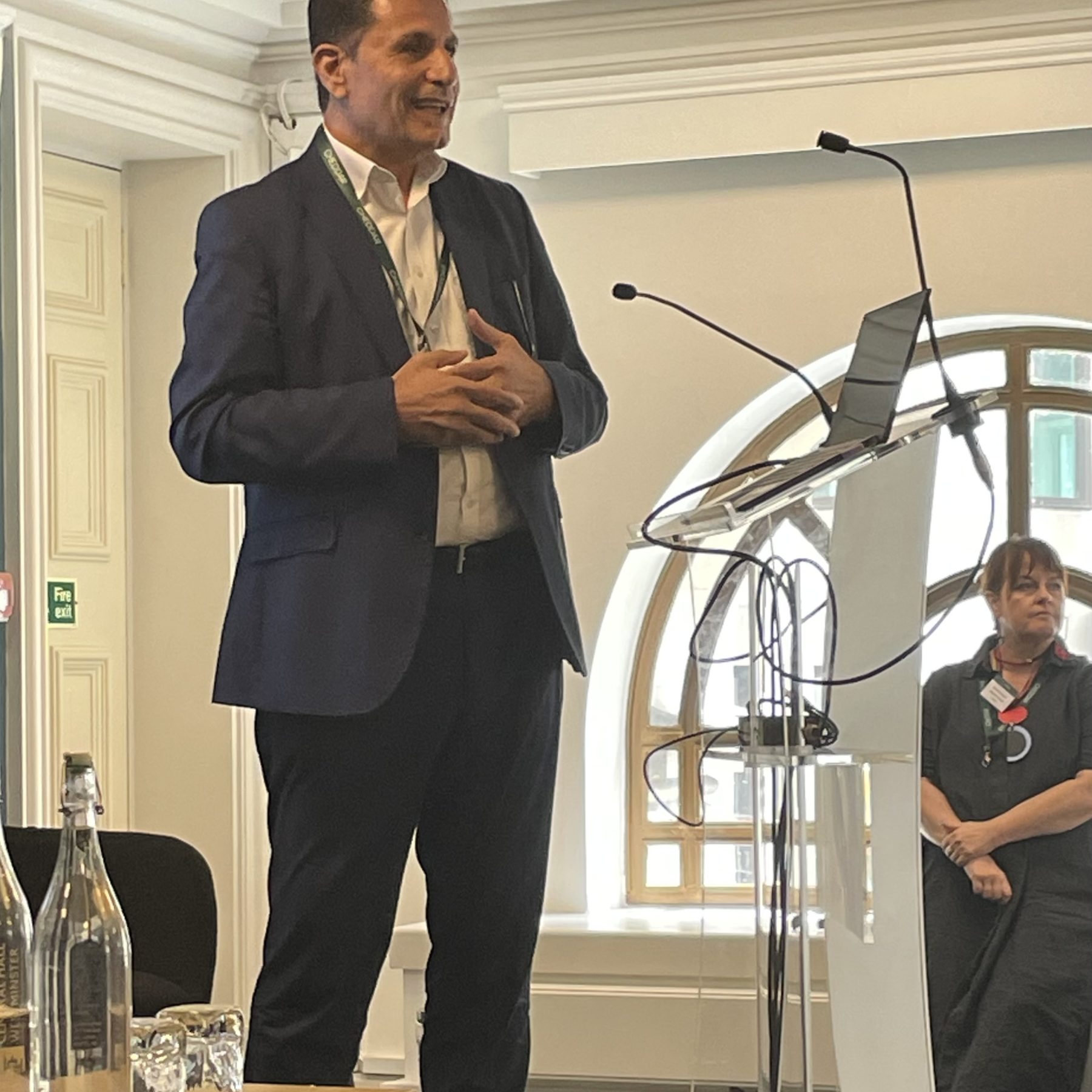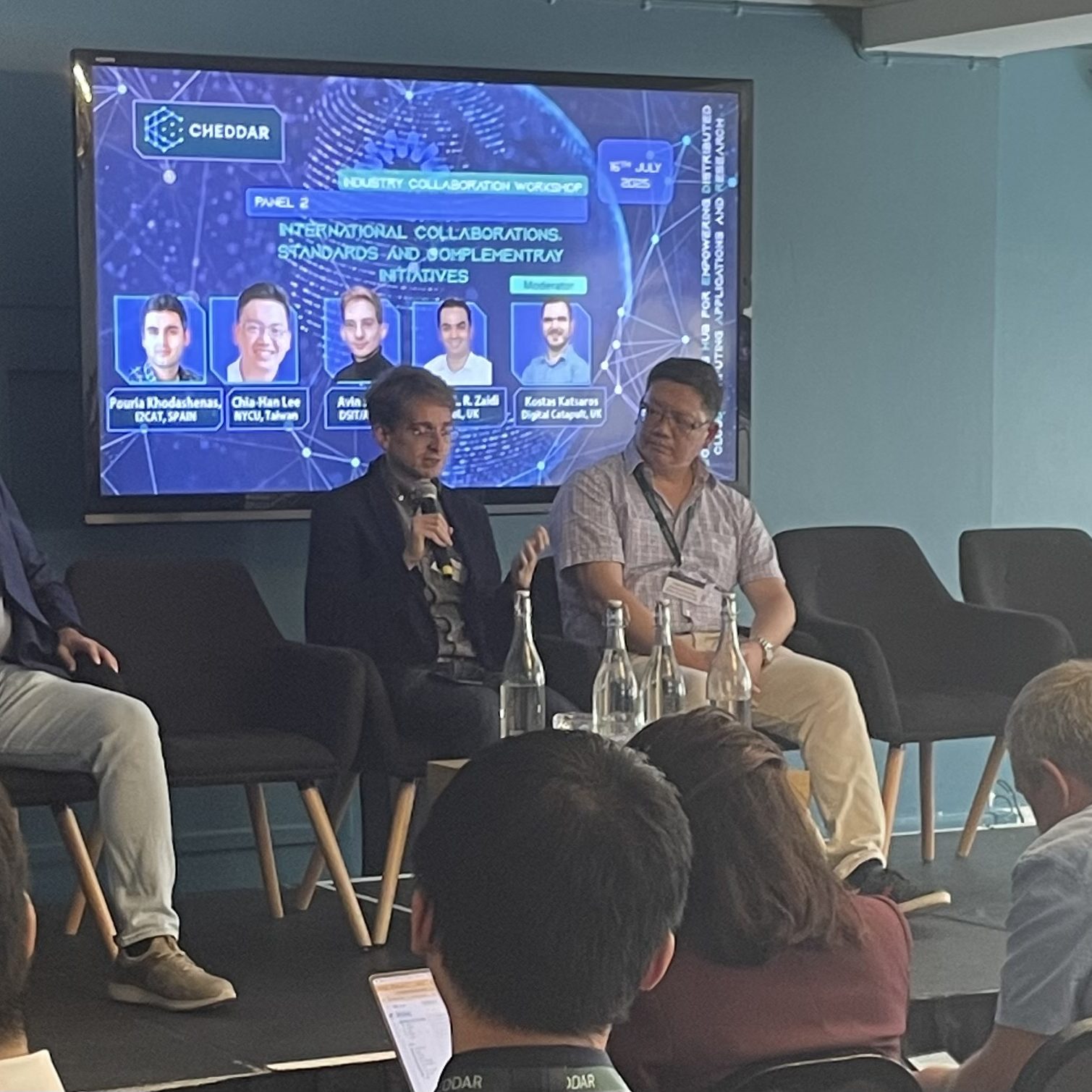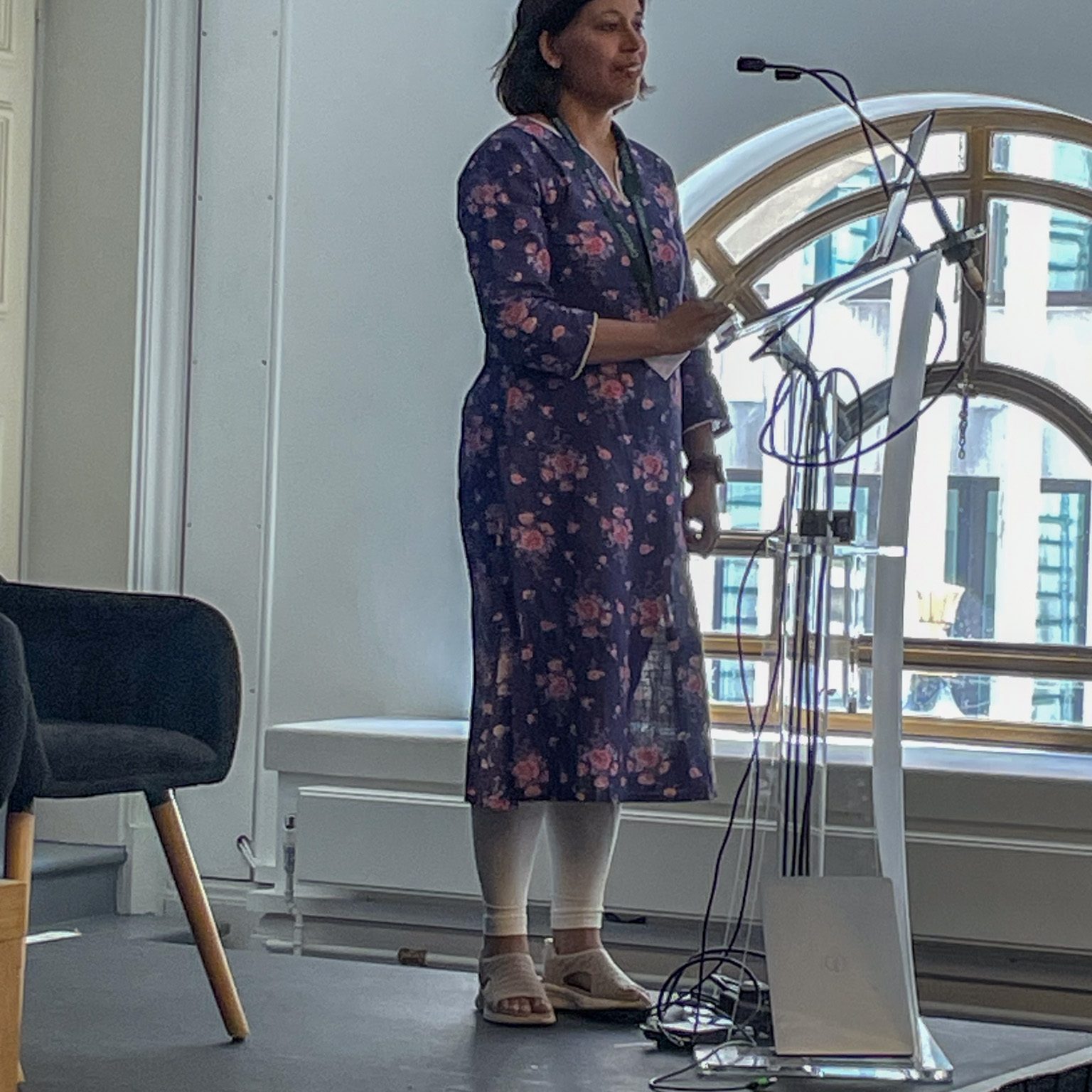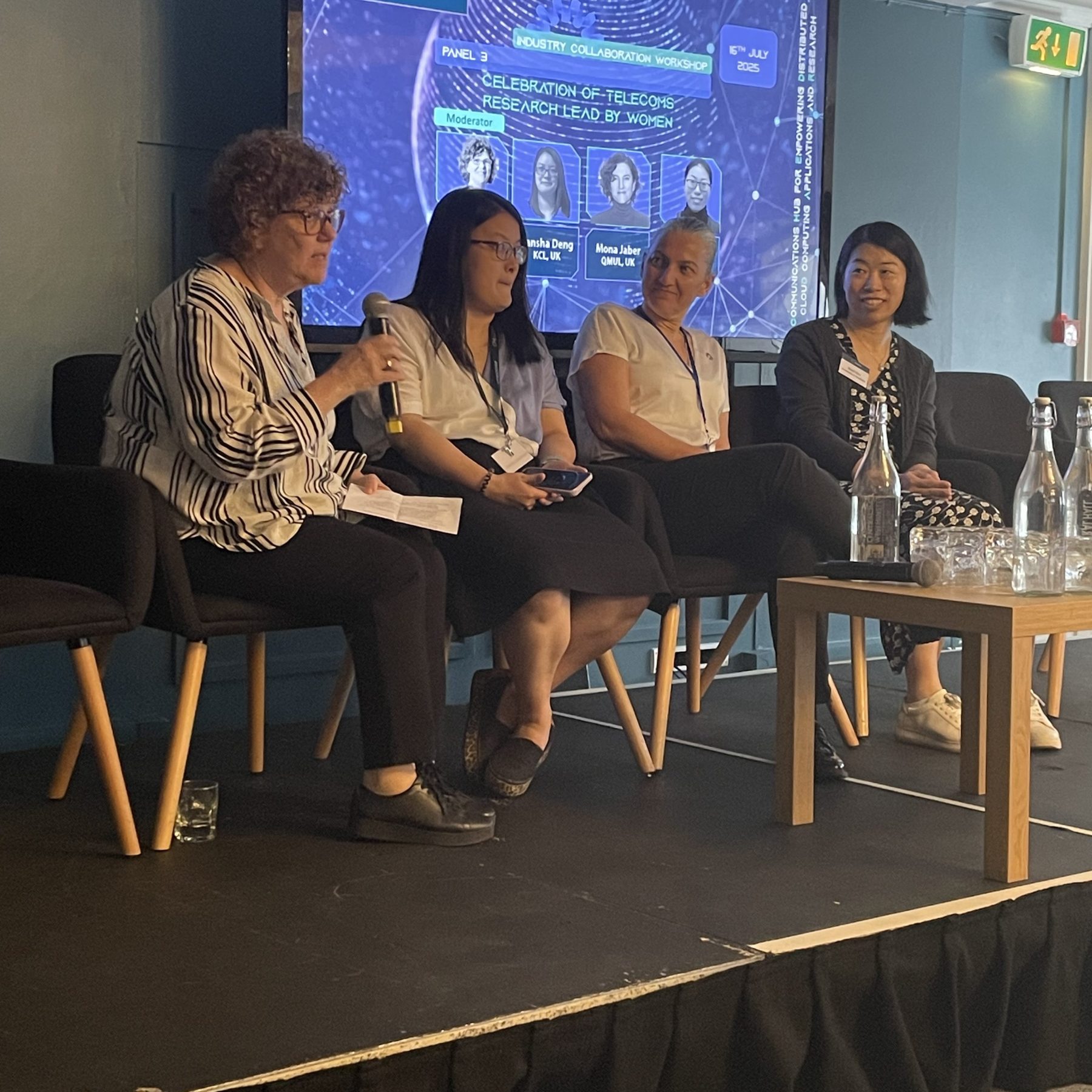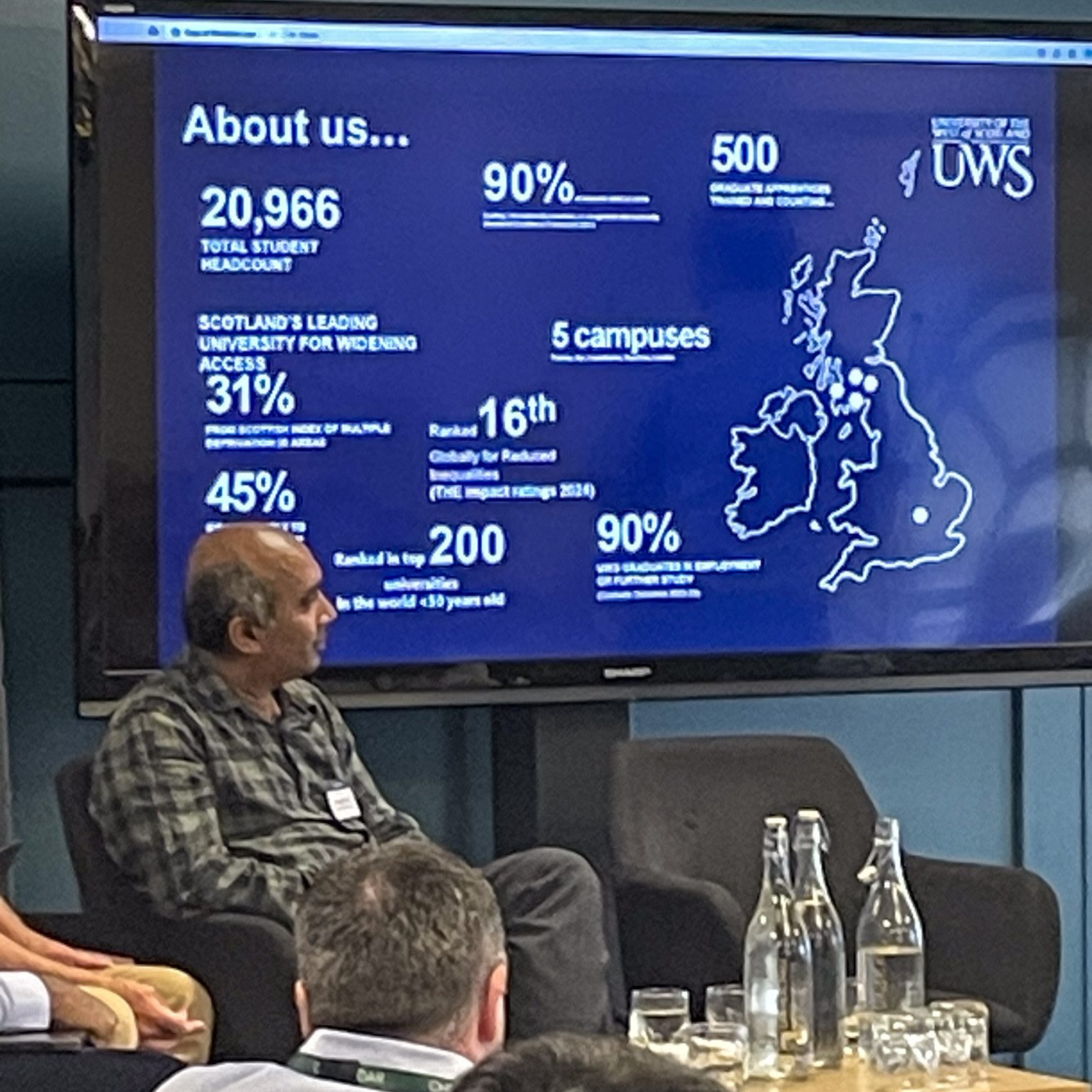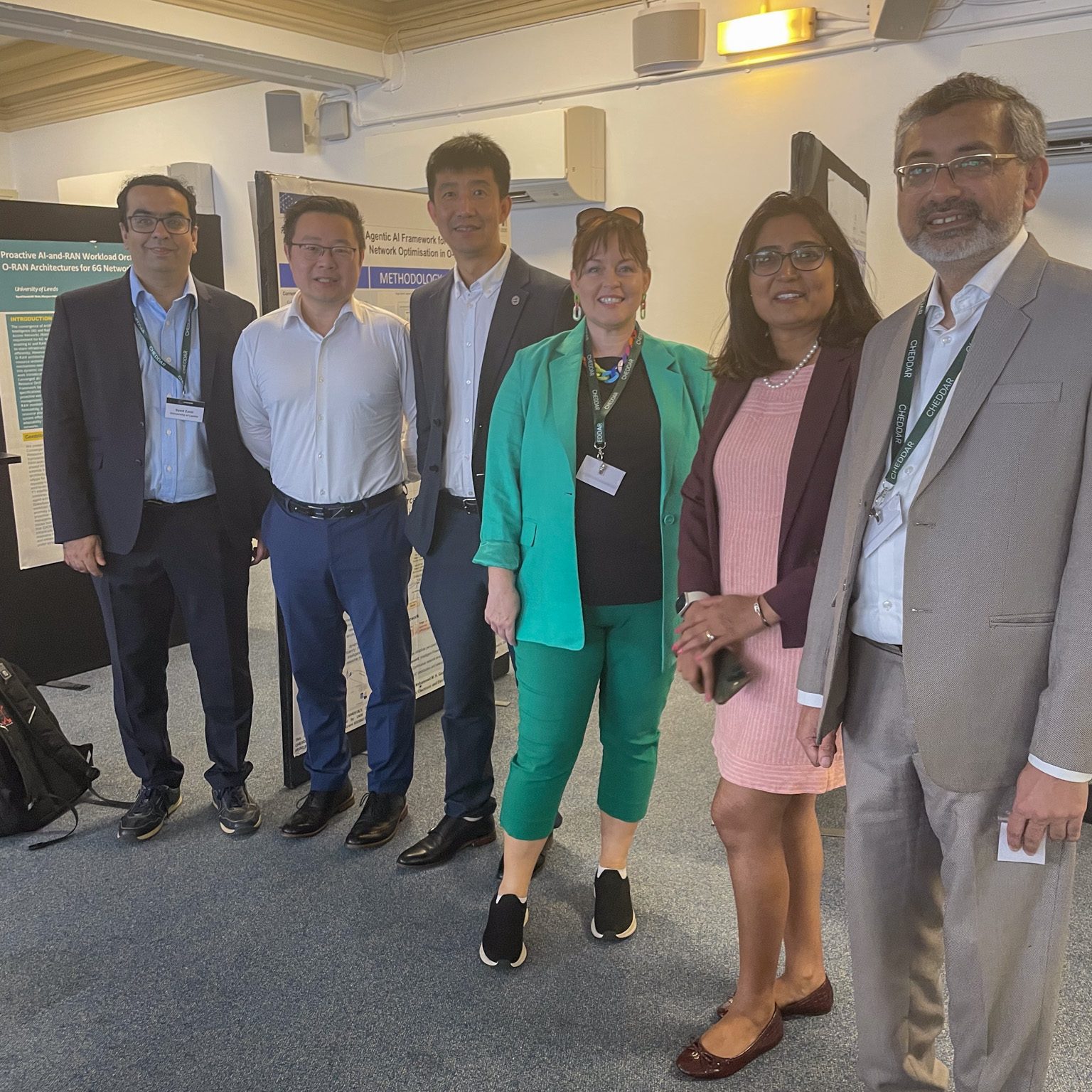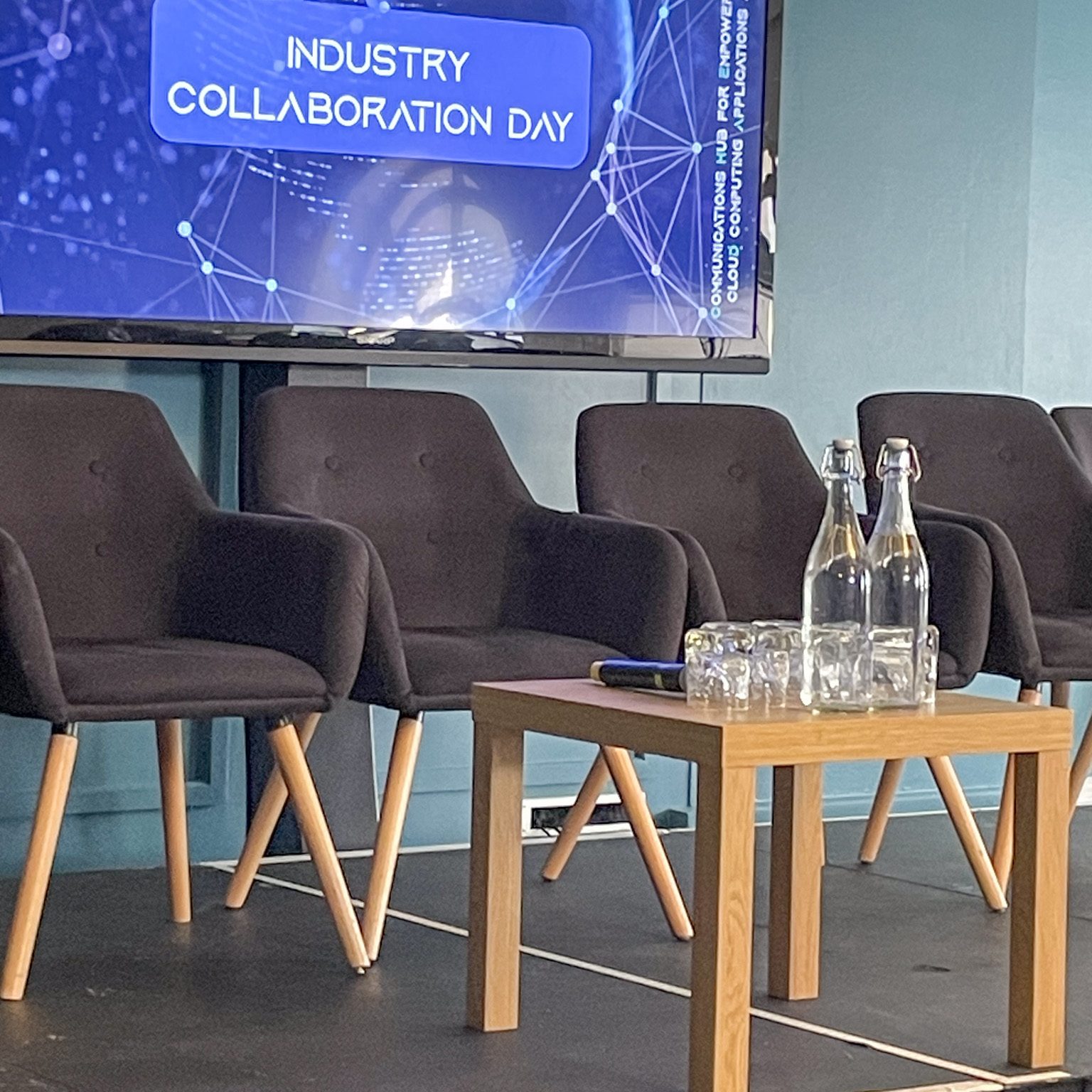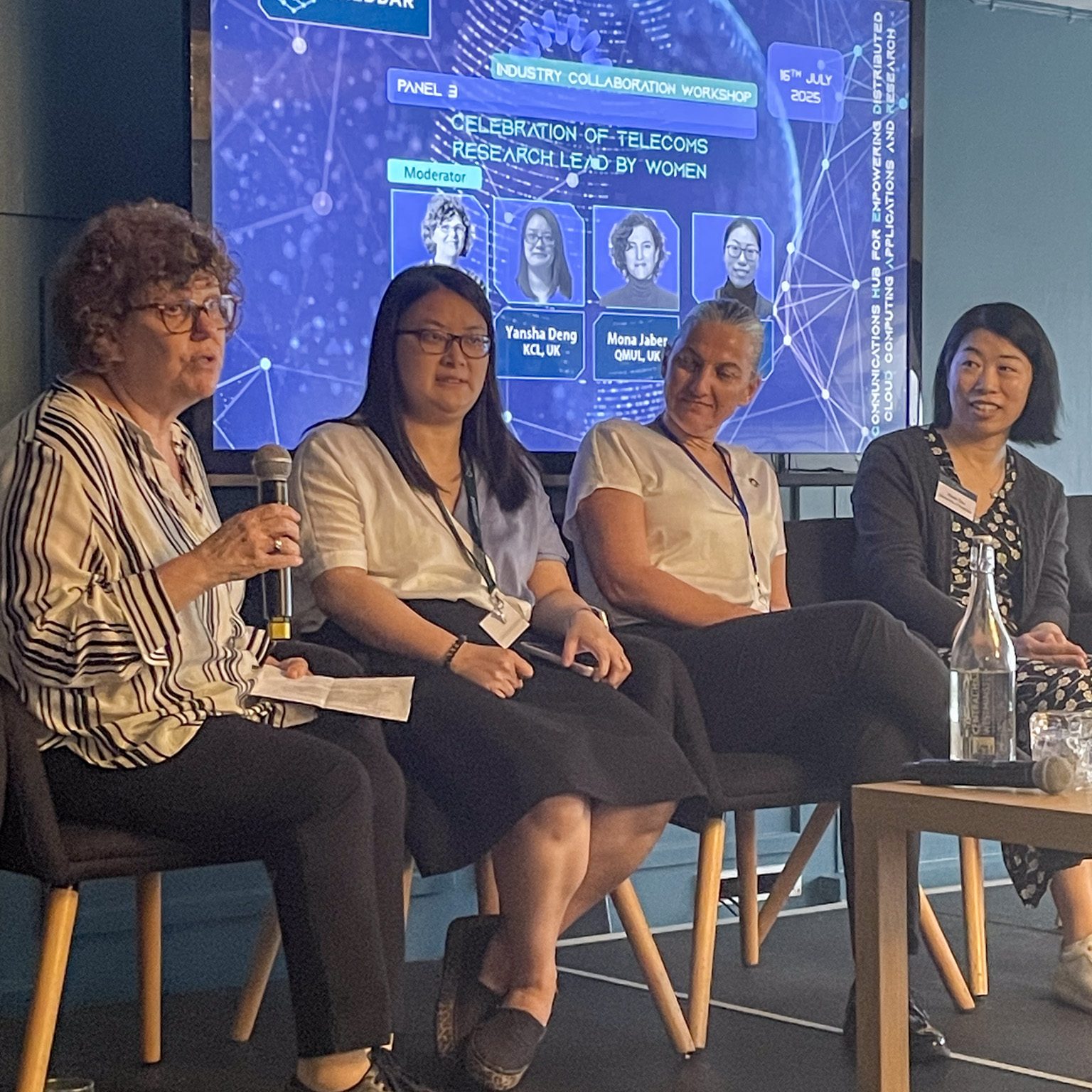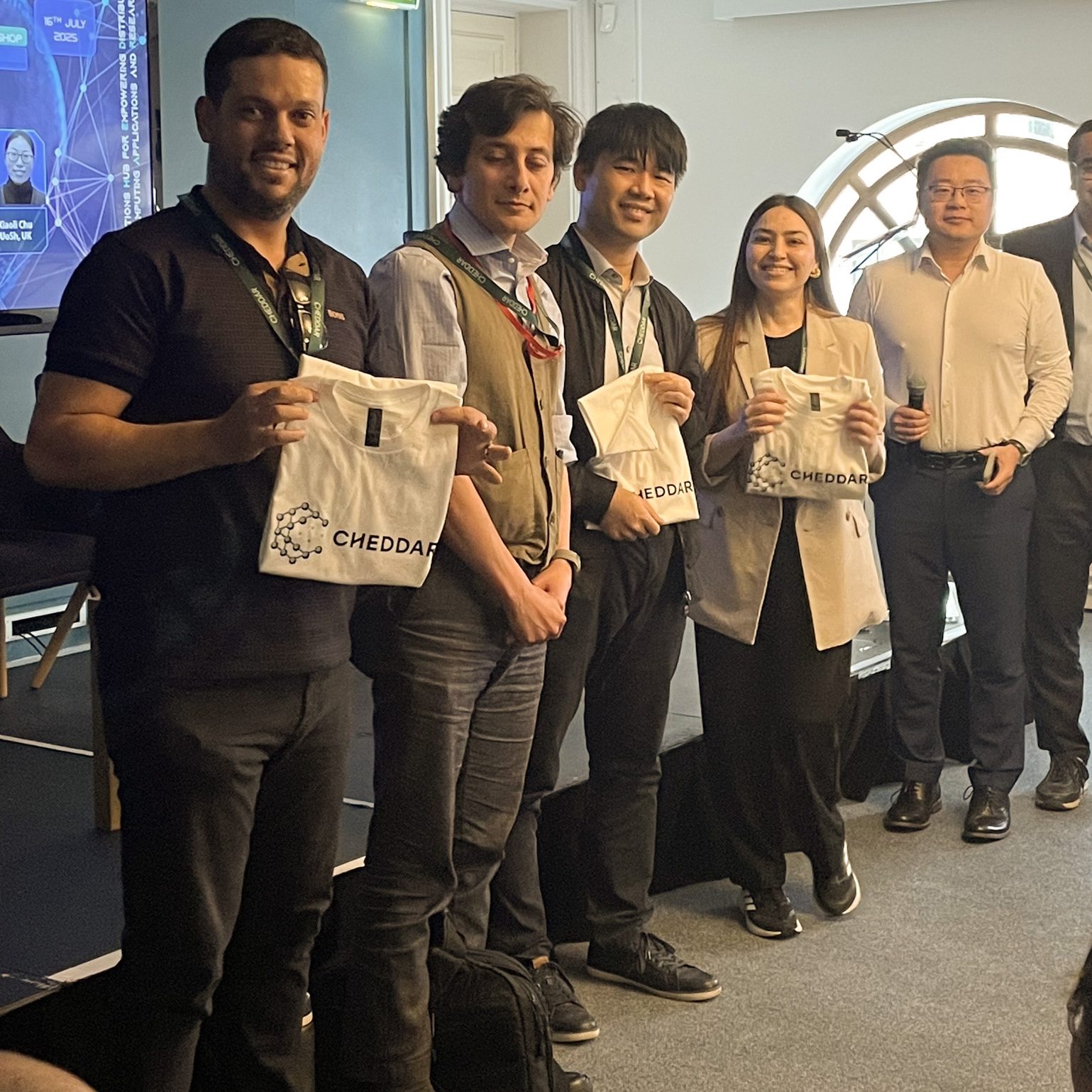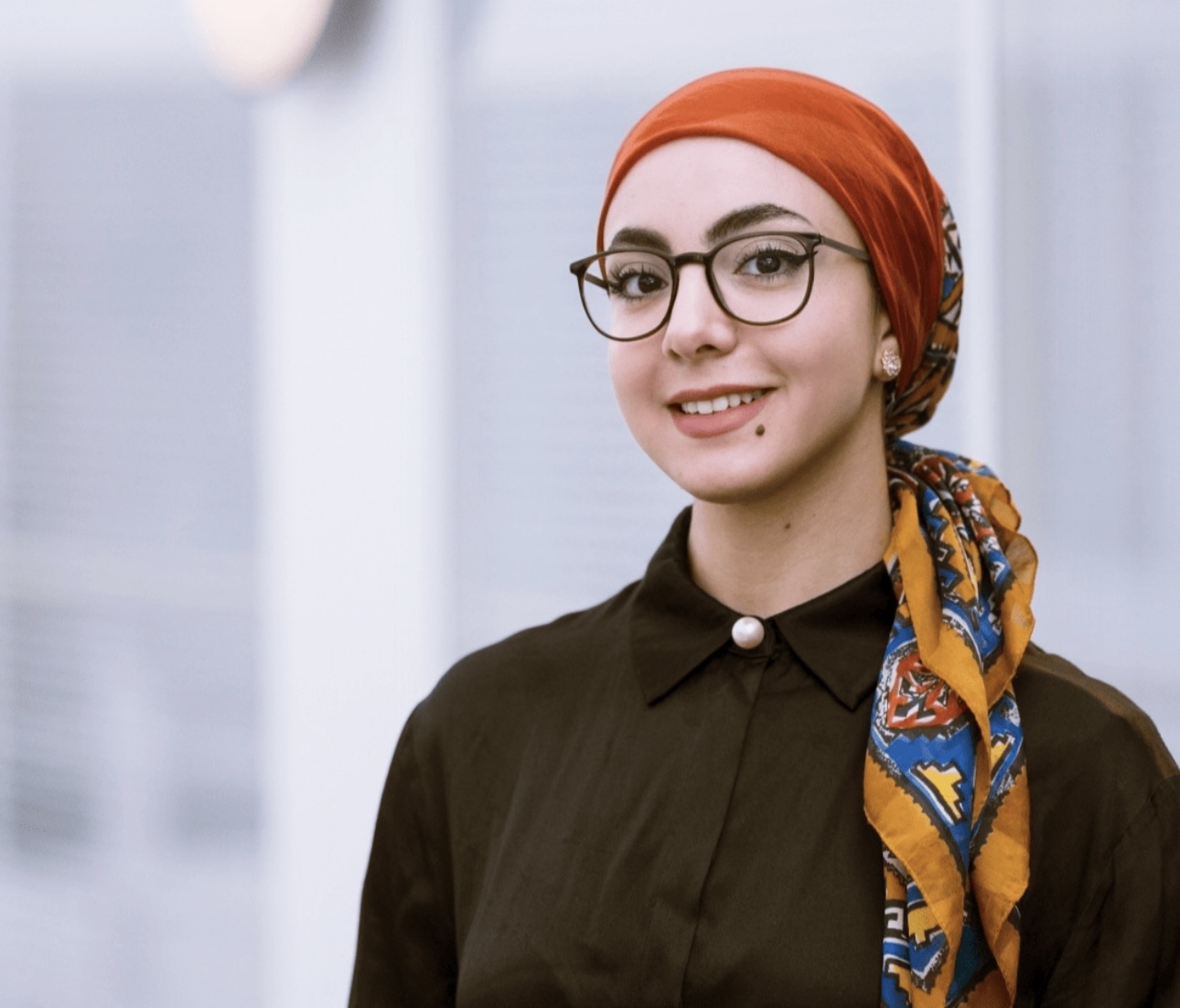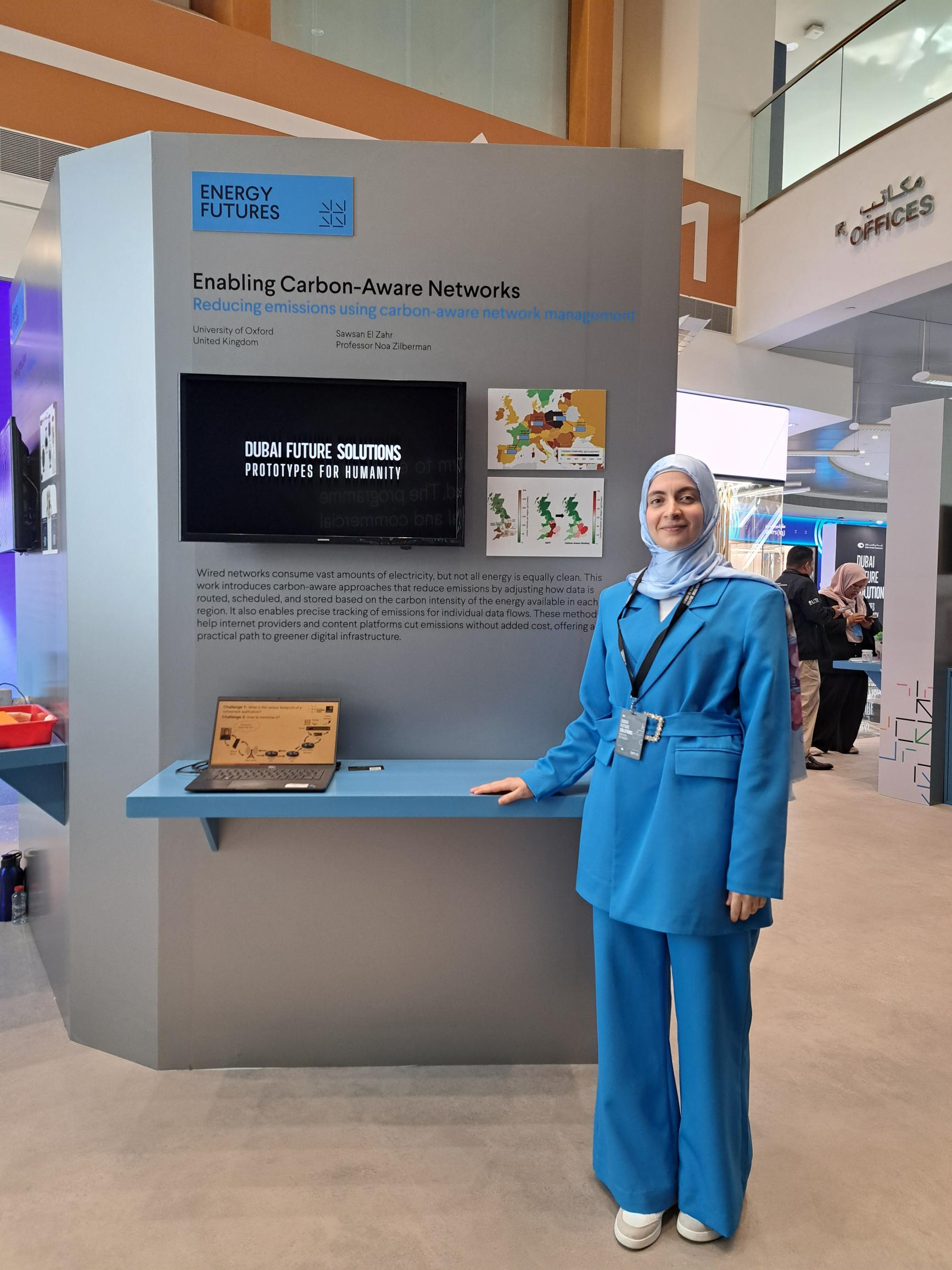Event Report: Friends of CHEDDAR Day & Industry Day
4 Aug, 2025
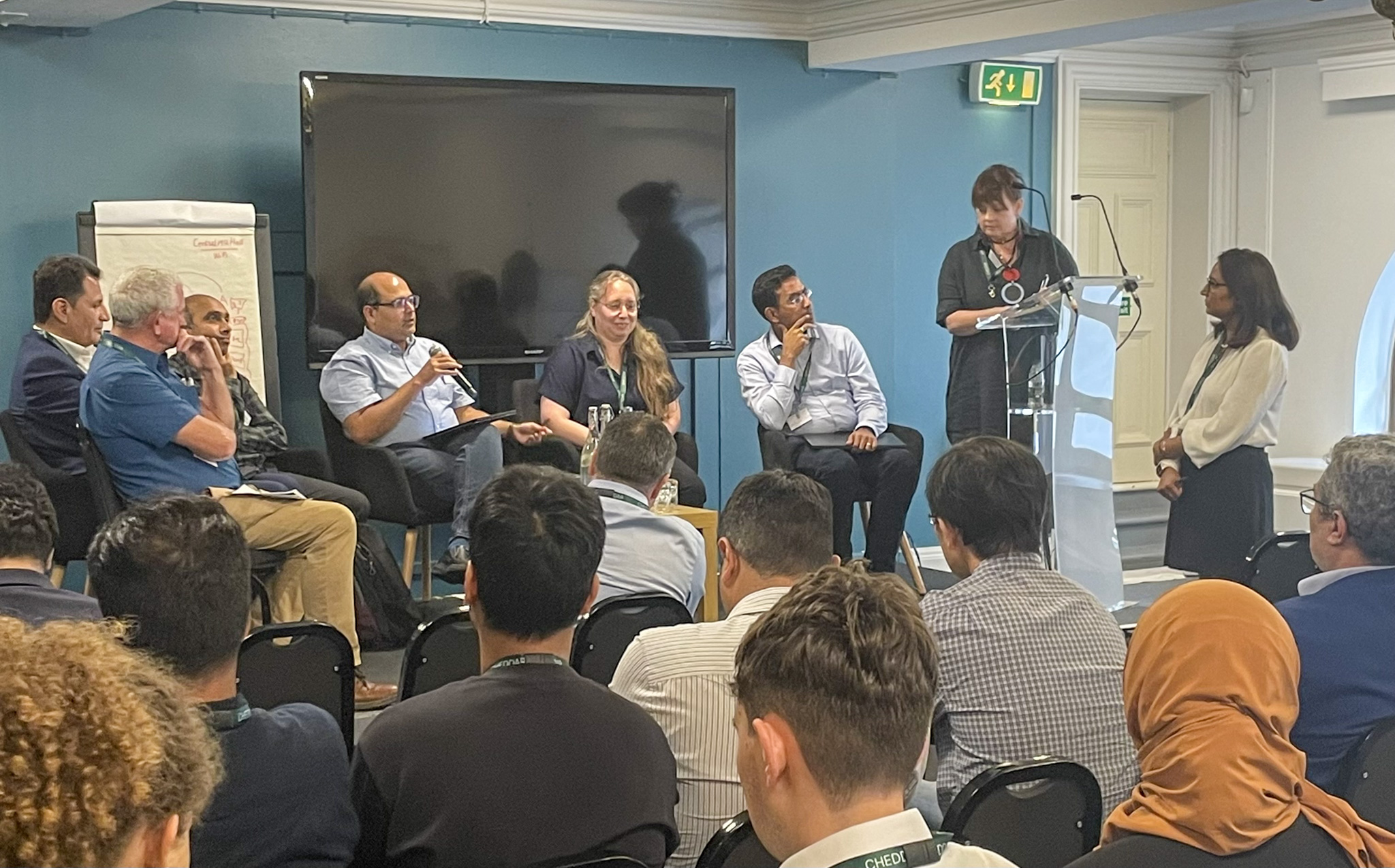
CHEDDAR recently hosted two standout events: Friends of CHEDDAR Day and Industry Day at Central Hall Westminster, bringing together academic researchers, industry leaders, policymakers, and innovators under one roof.
15–16 July 2025
Central Hall Westminster, London
Across both days, the spotlight was on the future of next-generation telecoms, with exciting discussions and showcases around 6G, AI, and cloud technologies. More than just presentations, these events were a platform for collaboration, idea-sharing, and building partnerships across sectors.
Welcome & Keynotes
The day began with a warm welcome and introduction to CHEDDAR by Professor Julie McCann of Imperial College London, who highlighted CHEDDAR’s vision and mission of the hubs work.
Keynote speeches from:
- Mallik Tatipamula (CTO, Ericsson USA) – provided insights into global telecom trends and the role of AI in network transformation.
- Amanda Brock (CEO, OpenUK) – addressed the importance of open technologies and open standards in telecom innovation.
Showcase of CHEDDAR innovations
Participants were given an overview of cutting-edge research and demonstrators from CHEDDAR researchers.
Funding Landscape Panel
This insightful session brought together funding experts to share practical strategies for navigating the complex world of research funding.
Prof Alistair Donaldson, Prof Rahim Tafazolli, Hanna Barclay, and Dr Andrew Wright offered valuable advice on securing support from UKRI, DSIT, Innovate UK, and EU programmes. From understanding what funders are looking for to tips on building strong proposals, this panel was packed with guidance for turning great research ideas into funded projects.
Collaboration Workshop
The CHEDDAR and Friends collaboration session brought together leading voices to shape a roadmap for future joint projects, with a strong focus on convergence science and interdisciplinary innovation.
The discussion featured thought-provoking contributions from Noa Zilberman (University of Oxford), Nishant Sastry (University of Surrey), Muhammad Zeeshan Shakir (University of the West of Scotland), Gerard Parr (University of East Anglia), Rahim Tafazolli (University of Surrey), and Mahesh Marina.
The session was expertly moderated by Dr Poonam Yadav, helping steer a dynamic exchange of ideas to spark the next phase of collaborative research.
Networking and Posters
Lunch and drinks receptions included poster displays, offering attendees the opportunity to interact with researchers and explore ongoing CHEDDAR projects.
Industry Day – 16 July 2025
Welcome & Keynotes
Professor Julie McCann opened the day, reaffirming CHEDDAR’s role in fostering innovation across the telecoms ecosystem.
Keynotes featured:
- Ronnie Vasishta (SVP Telecoms, NVIDIA, USA) exploring the rise of AI-enabled infrastructure and NVIDIA’s role in the telecom revolution.
- Dan Warren (Director, Communications Research, Samsung R&D UK) offering insights into 6G research directions and the importance of standards alignment.
Panel Sessions and Speakers
Panel 1: Exploring Convergence between AI and Advanced Connectivity Technologies
Moderated by Dr Syed A. R. Zaidi from the University of Leeds, this lively panel delved into how AI is transforming telecom networks and infrastructure as we know them.
The conversation brought together a brilliant mix of academic and industry voices, with insights from Michele Polese (Northeastern University), Paul Harris (VIAVI Solutions), Xenofon Foukas (Microsoft), Mahesh Marina (University of Edinburgh), and Dimitrios Pezaros (University of Glasgow).
Together, they unpacked the opportunities and challenges at the intersection of AI and next-generation connectivity.
Panel 2: International Collaborations and Standardisation Outlook
This session zoomed in on the importance of global R&D collaboration, strategies for standardisation, and aligning research efforts across borders.
Led by a dynamic line-up, the panel featured insights from Pouria Khodashenas (i2CAT Foundation, Spain), Chia-Han Lee (National Yang Ming Chiao Tung University, Taiwan) and Nikola Serafimovski (Federated Telecoms Hubs, UK).
Together, they explored how international cooperation is shaping the future of telecom innovation and standards.
Panel 3: How to Spin-Off and Innovate?
This practical session explored how to turn cutting-edge research into real-world commercial impact, with a focus on innovation, entrepreneurship, and navigating the spin-off journey.
Moderated by Prof. Muhammad Ali, the panel brought together an inspiring mix of industry pioneers and academic entrepreneurs: Heba Bevan (UtterBerry), Bob Stewart (StrathSDR), David Owens (VMO2/University of Glasgow) and Kaveh Delfanazari (University of Glasgow).
Their shared experiences offered valuable insights into building successful ventures from research breakthroughs.
Special Session: A Celebration of Women in Telecoms
This uplifting and inspirational session shone a spotlight on the incredible research, leadership, and impact of women driving innovation in the telecoms sector. With a strong focus on diversity, inclusion, and mentorship, it celebrated the voices shaping the future of connectivity.
Presentations came from rising talents including Hira Hameed and Lubna (Imperial), Jaspreet Kaur (University of Glasgow), Bidushi Baruna (University of York), Zeinab Nezami (University of Leeds), Wanqing Tu (Durham University), and Saba Al-Rubaye (Cranfield University).
They were joined by a brilliant panel chaired by Dimitra Simeonidou (University of Bristol), with contributions from Yansha Deng (King’s College London), Mona Jaber (Queen Mary University of London), and Xiaoli Chu (University of Sheffield).
Together, they shared powerful perspectives on the role of women in shaping the next generation of telecoms research and leadership.
Networking and Posters
Both days featured lively poster sessions and networking receptions, offering attendees a platform to share ideas, build partnerships, and explore CHEDDAR’s national impact.
Congratulations to Lubna Lubna (Imperial), Yun Tang (Cranfield) and Abdelaziz Salama (Leeds) who were all three worthy winners in the Poster competition.
Vision 2035: Expert Predictions on Connectivity and Sustainability
As part of the CHEDDAR event series, keynote speakers were invited to share their boldest predictions for digital infrastructure in 2035 and their insights into how next-generation networks can support global sustainability and climate goals. Here’s what they said:
Mallik Tatipamula
CTO, Ericsson USA
Boldest prediction for 2035:
By 2035, connectivity will feel like oxygen—always there, everywhere, invisible yet essential—linking terrestrial, satellite, and edge-intelligent networks into a single, self-adjusting digital fabric that senses, learns, and responds in real time.
On supporting sustainability goals:
These networks Aill do more than connect people; they’ll connect the planet. By embedding intelligence and sensing at every layer, they will drive energy efficiency, enable precision climate monitoring, and optimize resources at a scale we’ve never seen before—accelerating progress toward global sustainability and climate goals.
Amanda Brock
CEO, OpenUK
Boldest prediction for 2035:
Our digital infrastructure will be more sustainable—both environmentally and in terms of its long-term resilience.
On supporting sustainability goals:
The next-generation network can support this by engaging more with the open-source ecosystem and established good practices to contribute to long-term sustainable infrastructure, much of which will inevitably be open source.
Dan Warren
Director, Communications Research, Samsung R&D UK
Boldest prediction for 2035:
A fully softwarised, micro-service soup, where every application is delivered over an intent-based, autonomously designed end-to-end network instance, and the concept of ‘Slicing’ is banished and replaced simply by ‘flexibility at scale’.
On supporting sustainability goals:
By being implemented efficiently (which means rethinking everything we know about hardware and software and re-marrying them to serve applications with ‘just enough’ resource), and by connecting devices and applications that make everything else operate efficiently too.
Conclusion
The two-day CHEDDAR event series succeeded in its aim to showcase groundbreaking research, foster multi-stakeholder collaboration, and drive national and global conversations on next-generation telecoms. The programme offered a rich mix of strategic insight, technical exchange, and community-building, reinforcing CHEDDAR’s leadership at the forefront of UK telecoms research. Please see more images from our successful events

